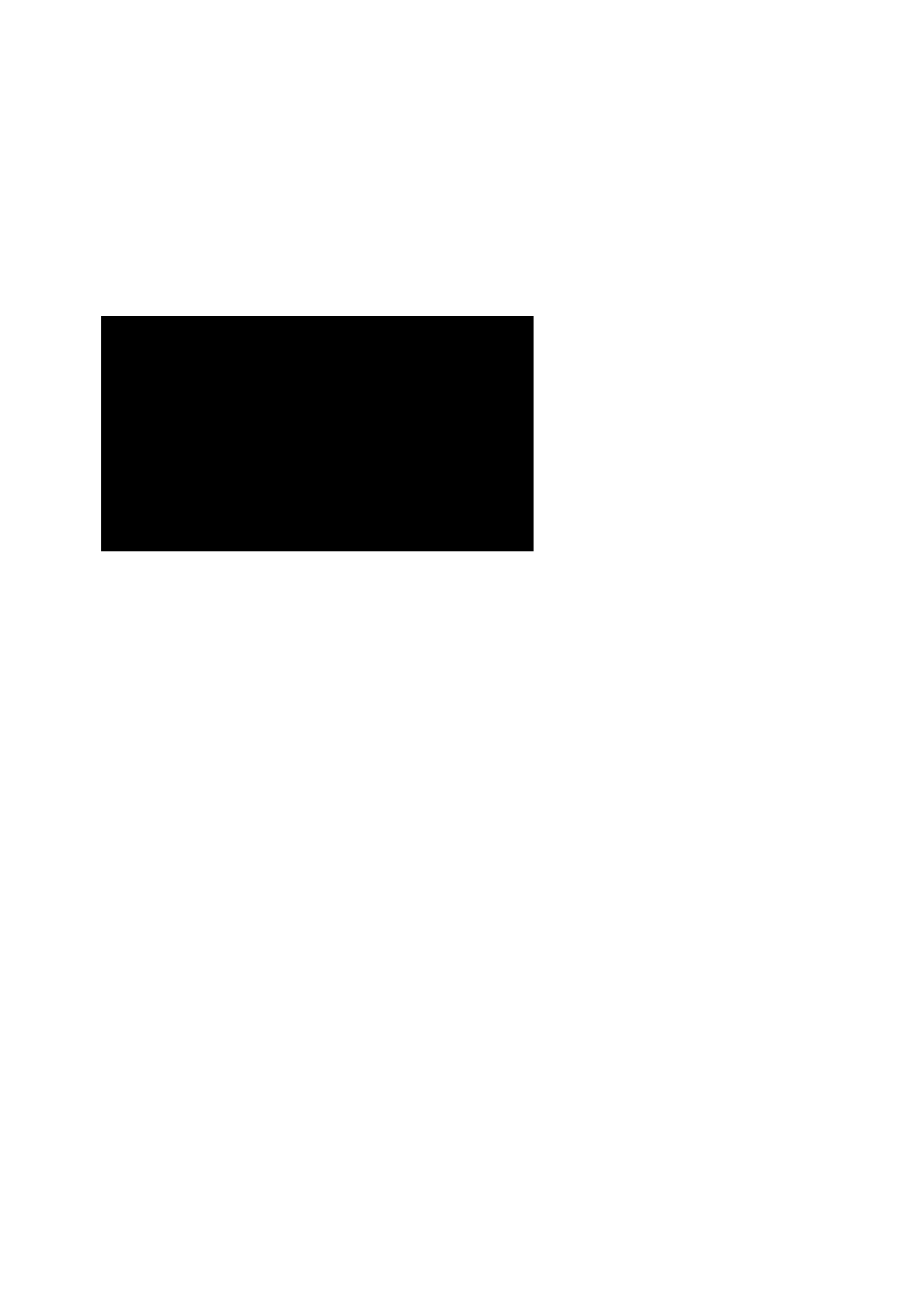

A WORLD WHERE EVERYONE’S WELL-BEING SHINES
WORDS FROM OUR MANAGING DIRECTOR
Dear Friends,
As we look back on the accomplishments of the Learning for Well-being Foundation in 2023, I am filled with pride and gratitude for the remarkable milestones we have achieved together. This year has been a testament to our collective commitment to fostering environments where every individual can flourish and realize their unique potential.
At the heart of our work lies the unwavering belief that true social change begins with understanding oneself. Personal transformation is not just a catalyst for individual growth but a cornerstone for broader societal progress. By exploring and cultivating our inner capacities, we become better equipped to foster relationships that drive social change. This year, our initiatives have underscored the profound impact of this interconnected approach, bringing about meaningful advancements in various educational communities aiming at impacting policy-making arenas.
Throughout the year, we have witnessed inspiring transformations across various programs and initiatives. Our Act2gether activities supported the establishment of Student Governments and Municipal Children and Adolescent Committees in Bolivia, amplifying the voices of young people in decisionmaking processes. One poignant moment was Juan Angel Del Castillo Vargas’s (Vice President of the Student Governments and Municipal Children and Adolescent Committees) address at the Plurinational Committee’s 3rd General Assembly, where he eloquently spoke about the benefits of involving children and adolescents in governance. This initiative has not only empowered young leaders but also fostered a more inclusive and equitable society.
In Germany, the Kinderrechte Forum successfully hosted their first 2getherLAND camp in Cologne, focusing on mental health and well-being. This event brought together teenagers and adults for workshops and leisure activities, creating a supportive environment for addressing mental health issues. Such initiatives highlight the importance of creating spaces where young people can engage in open dialogues about their well-being, fostering a culture of mental health awareness and support.
Our commitment to creating and sharing knowledge was evident in projects like the Inclusion Box (iBox) initiative. This project, co-founded by the European Union, aims to ensure more inclusive educational practices and has begun producing a Compendium of Inspiring Practices. Additionally, the Learning for Well-being Institute was established as an independent entity to promote our approach globally through rigorous research and collaboration. These efforts are pivotal in influencing policy makers and educational communities to adopt practices that nurture holistic well-being.
Looking ahead, we see tremendous opportunities to expand our impact. We aim to continue advocating for school and education system reforms that prioritize human-centered design in teaching and learning. By integrating children’s holistic well-being and positive mental health at all levels of the living system, we strive to ensure that every child’s unique potential is fulfilled.
None of these accomplishments would have been possible without our incredible team who have demonstrated remarkable resilience and adaptability in light of the adversity stemming from the tragic events on October 7th, which greatly impacted out work and the projects being implemented in Israel and Palestine. These challenges have only reinforced our commitment to our mission, intensifying our efforts to achieve meaningful participation of children through intergenerational partnerships, supporting their active agency in matters important to them.
To our board, partners, supporters, and everyone involved in our journey, we extend our deepest gratitude. Your contributions have been instrumental in driving our mission forward. As we move into another year, let us continue to cultivate well-being, foster relationships, and inspire social change together. Thank you for being a vital part of our journey.
With heartfelt gratitude,
Yakarah Attias-Rosen Managing Director Learning for Well-being Foundation
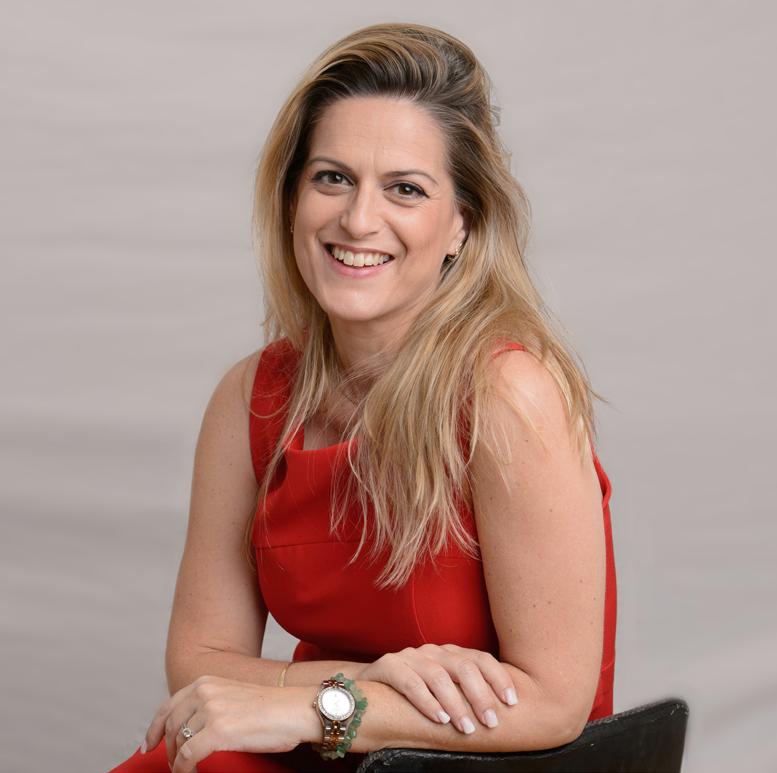
OUR ACTIVITIES
OUR WORK IN 2023
This report follows the structure of our four interconnected work areas:
• Partnering for Catalysing Change
• Creating & Sharing Knowledge
• Capacity Building
• Influencing and Advocacy
Additionally, we include our efforts to strengthen the foundation and our goals for the future.
ACTIVITIES
PARTNERING FOR CATALYSING CHANGE
Exploring, cultivating, and fostering relationships that drive social change is a cornerstone of our work.
Change can only happen through partnerships.
Our efforts in this area involve establishing and strengthening country-based Act2gether activities aligned with a global strategy.
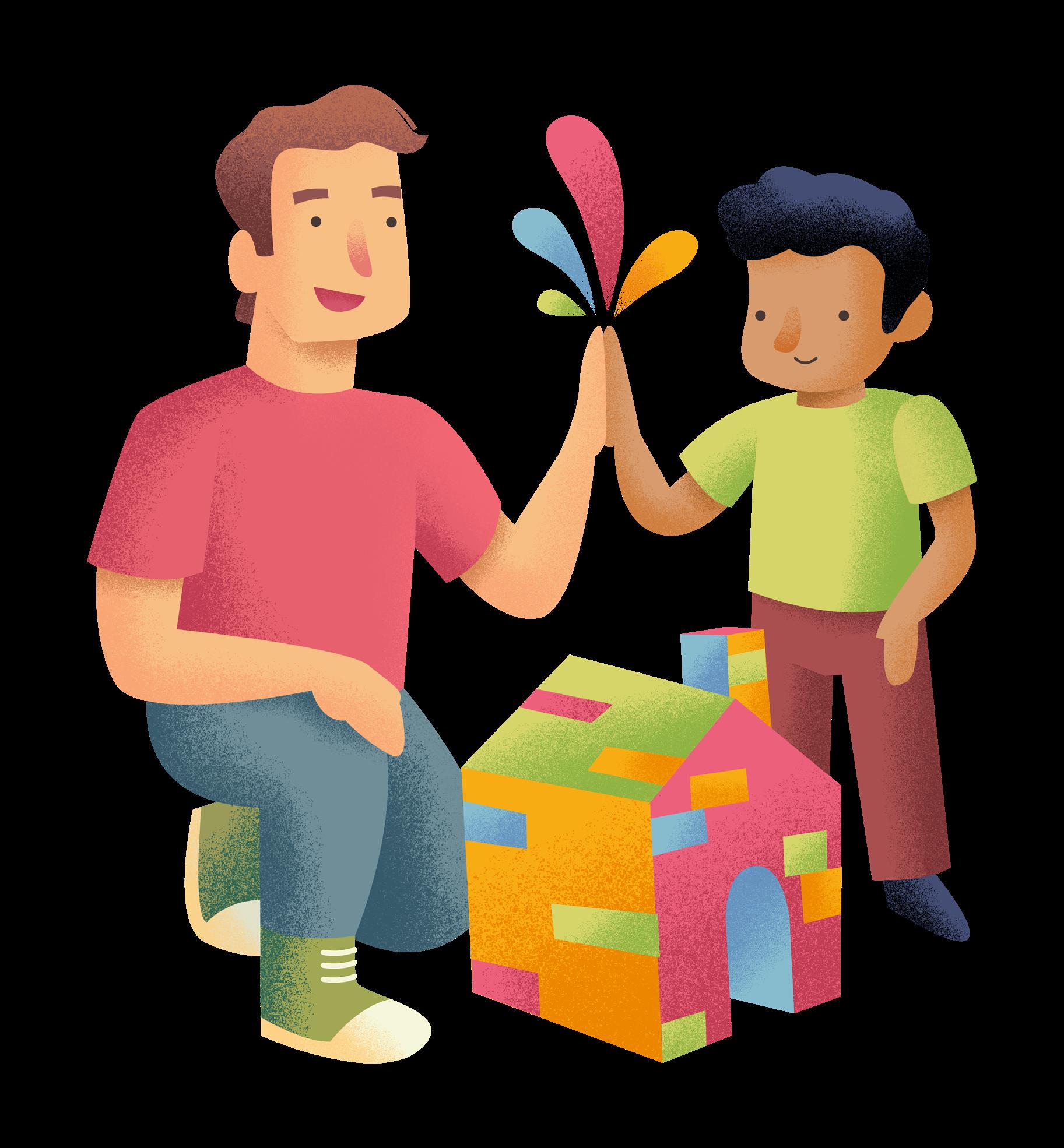
Act2gether
Bolivia
In 2023, Act2gether continued supporting children’s participation and launched new projects to broaden its impact.
In collaboration with partners, Act2gether supported the establishment of Student Governments and Municipal and Departmental Children and Adolescent Committees and the elections for the Plurinational Children and Adolescent Committee from 2023 to 2025. Act2gether also assists in their ongoing activities, including sessions to establish regional agreements and regular assemblies with Bolivian national authorities.
The Intergenerational Forum on Child Rights and Participation Bolivia was a significant highlight of the year. This forum provided a platform for representatives from various institutions, groups, committees, and civil society organizations to discuss the Convention on the Rights of the Child’s recommendations to the Bolivian State through interactive sessions, fostering a more inclusive and participatory approach to child rights discussions.
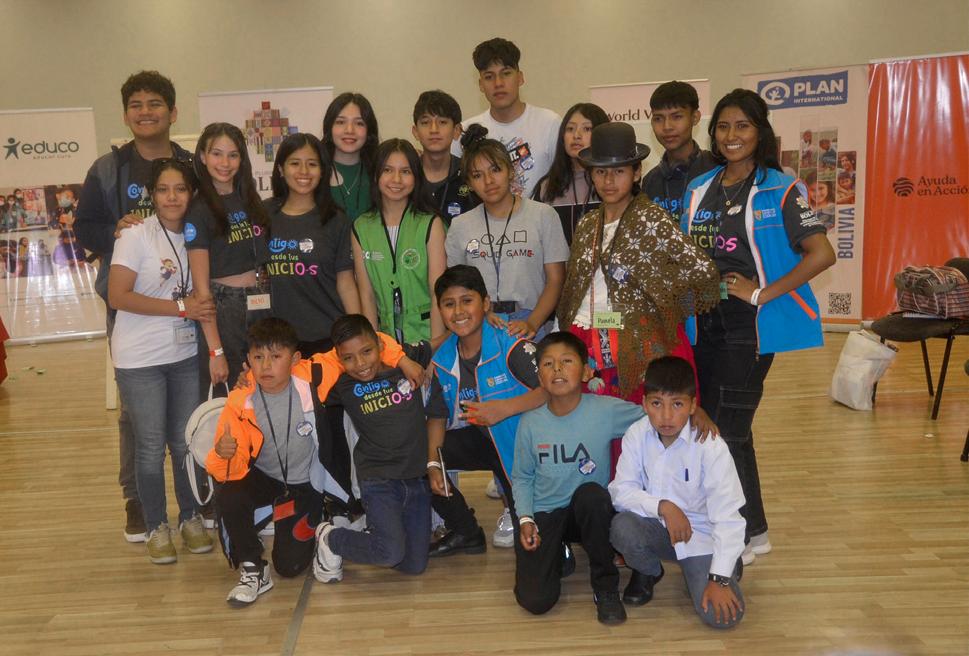
Listen to Juan Angel Del Castillo Vargas, the Committee’s former Vice President, speak at the Plurinational Committee’s 3rd General Assembly about how increasing the involvement of children and adolescents in decision-making processes benefits them and creates a more equitable society
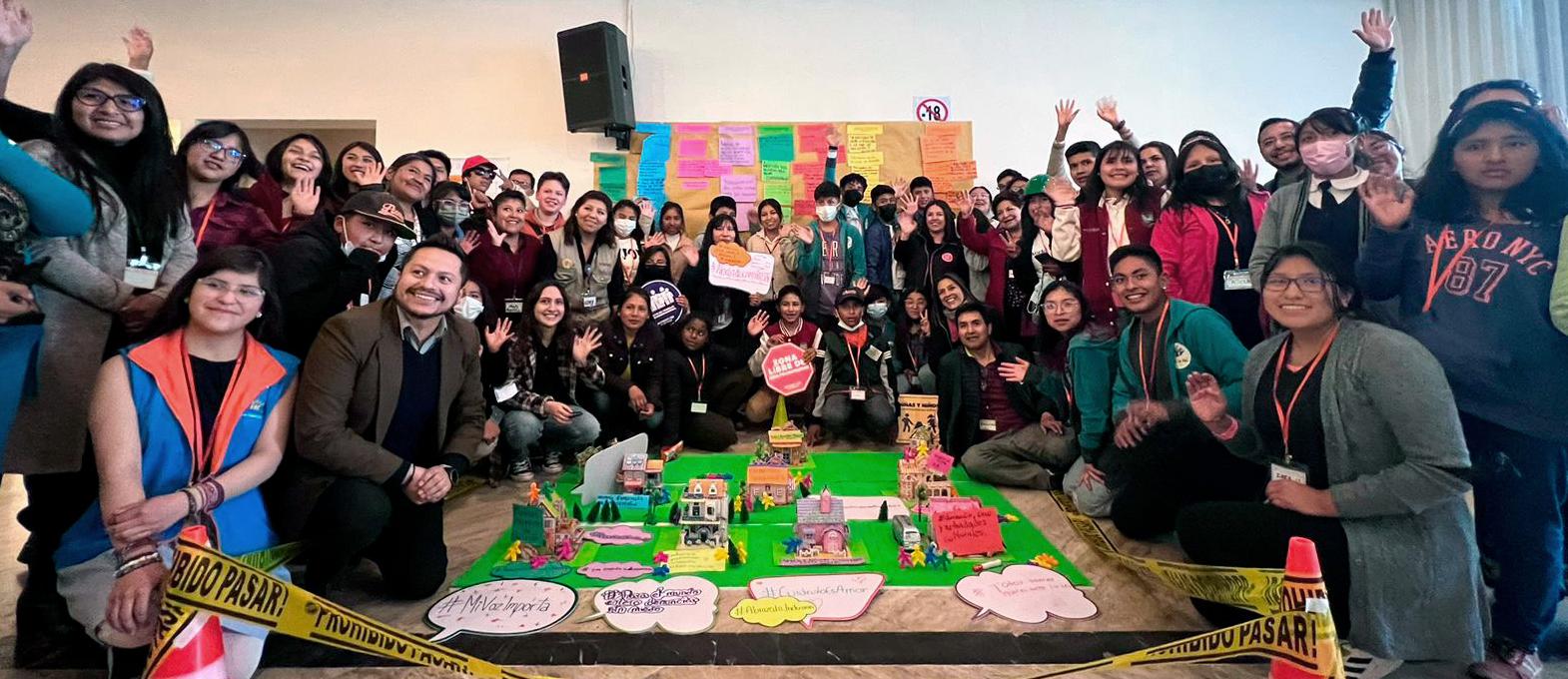
VIDEO
This year also marked the beginning of codeveloping a toolkit with early childhood teachers to encourage participation among children aged 4 to 5. ‘Promoting participation from the Roots’ incorporates the Learning for Well-being Foundation’s approach and insights from the What Makes Me? Report on nurturing children’s core capacities from an early age. The next stage involves implementing this toolkit in schools in La Paz.
As part of the ‘Empowering from the Roots: Moving Towards the Construction of a Participation System and Promotion of Agency Capacity in Children and Adolescents’ project, the third edition of the ‘Accionando’ contest was held in La Paz, encouraging children to identify and address school issues and providing small grants to implement impactful actions. The competition awarded four proposals addressing children’s needs, including creating a virtual library to promote well-being and academic development.
Lastly, within the ‘Child-Friendly Municipality’ programme by UNICEF in Bolivia, Act2gether conducted a training process on forming and supporting Children and Adolescent Committees. The activity targeted municipal technicians nationwide, helping municipalities meet one of the requirements to be certified as child-friendly.
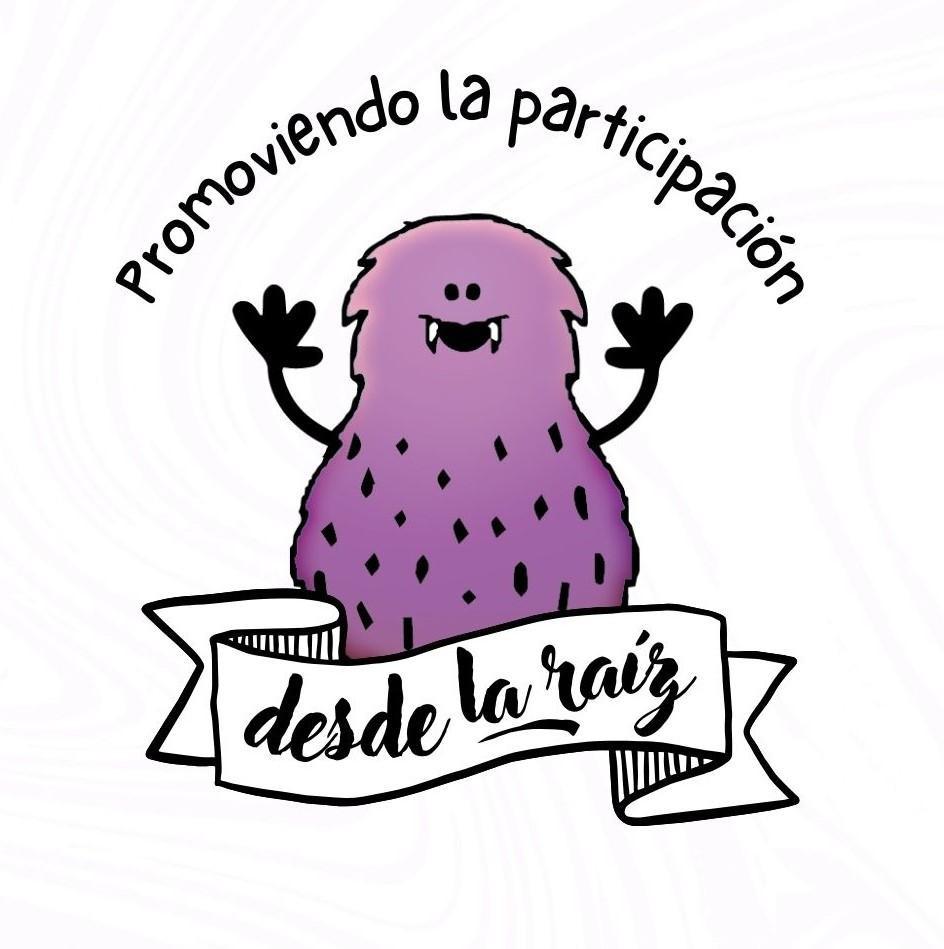
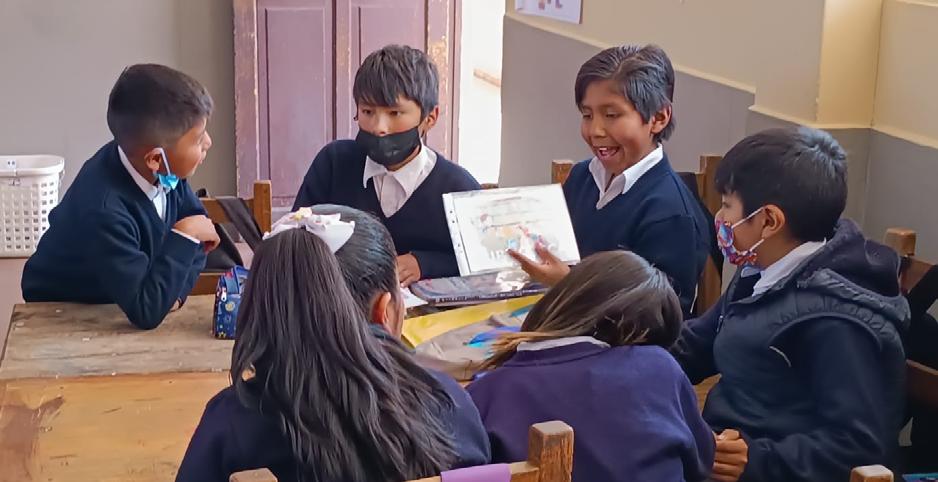
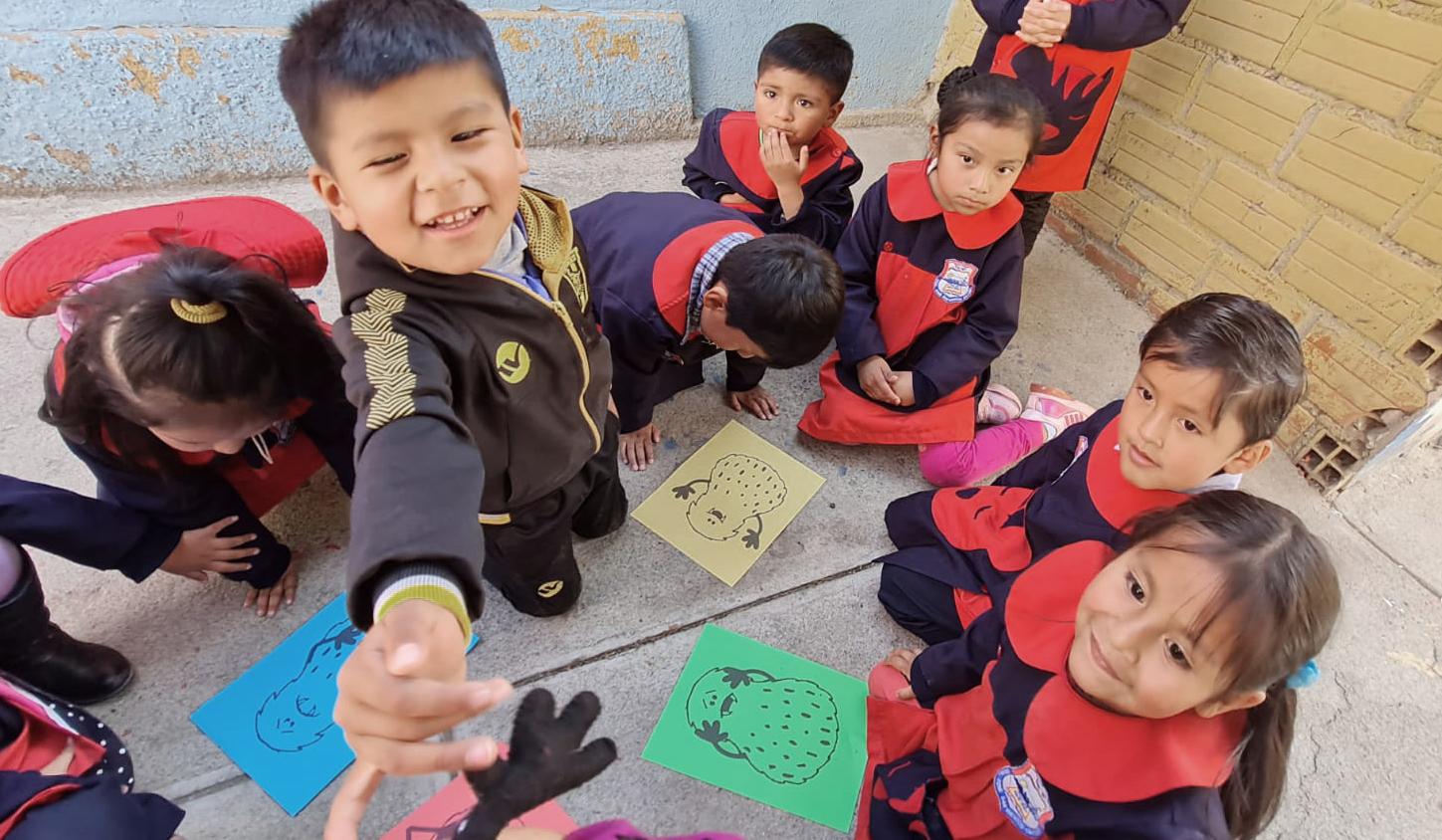
Palestine
In Palestine, Act2gether remained committed to listening to children and young people, addressing their needs through internal capacity building and external community engagement. Internally, one of the primary goals was enhancing digital communication skills. In August, team members and children from the Advisory Group participated in media training at Birzeit University’s Media Development Centre. This training included public service advertisements, digital storytelling, writing for social media, and open-mic platforms, equipping participants to communicate their activities effectively through digital platforms.
The work with the community included delivering trainings and workshops in partnership with local schools and other organizations. One notable activity involved workshops in two schools, training mothers and students aged 6 to 11 in communication skills and stress management strategies. Another training session provided students and teachers in Ramallah with the knowledge and skills to promote child protection and ensure safety and well-being in schools.
During 2023, their network was reinforced and expanded; they signed agreements to develop further activities with several local schools and other organizations. Act2gether fosters a holistic growth and development culture in Palestine by collaborating closely with partners and providing essential wellbeing tools. These partnerships are pivotal in creating learning environments that support children’s comprehensive development.
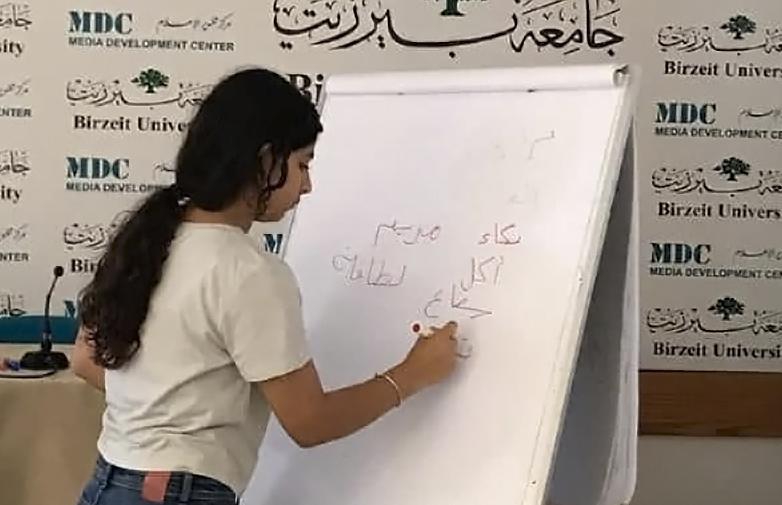
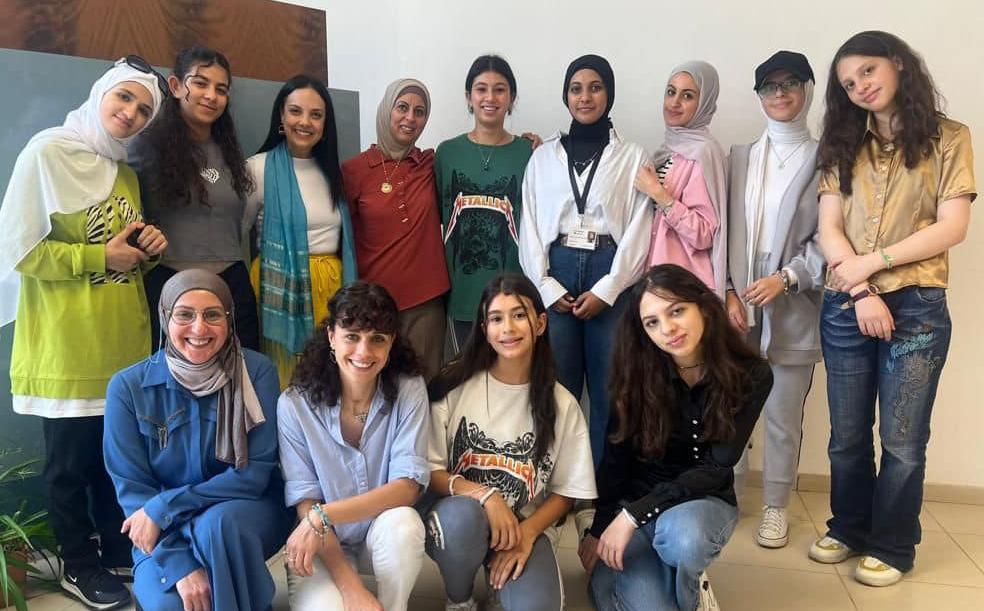
ACTIVITIES › PARTNERING FOR CATALYSING CHANGE
The Netherlands
Act2gether’s efforts in The Netherlands focused on nurturing young leaders and promoting well-being and youth participation through in-person activities.
In March, a two-day session allowed young people to enhance their self-awareness and social and leadership skills. In May, a second training equipped participants with the tools to become leaders and facilitators, enabling them to support other youth-focused organizations in adopting participatory practices.
The programmes combined theoretical knowledge with hands-on experiences, helping participants discover their potential, value diversity, and explore topics like child rights and intergenerational partnerships. Continuous evaluations provided positive feedback, guiding improvements for future activities.
These initiatives were made possible with support from the European Union’s Erasmus+ programme, the Triodos Foundation, and a generous private donor.

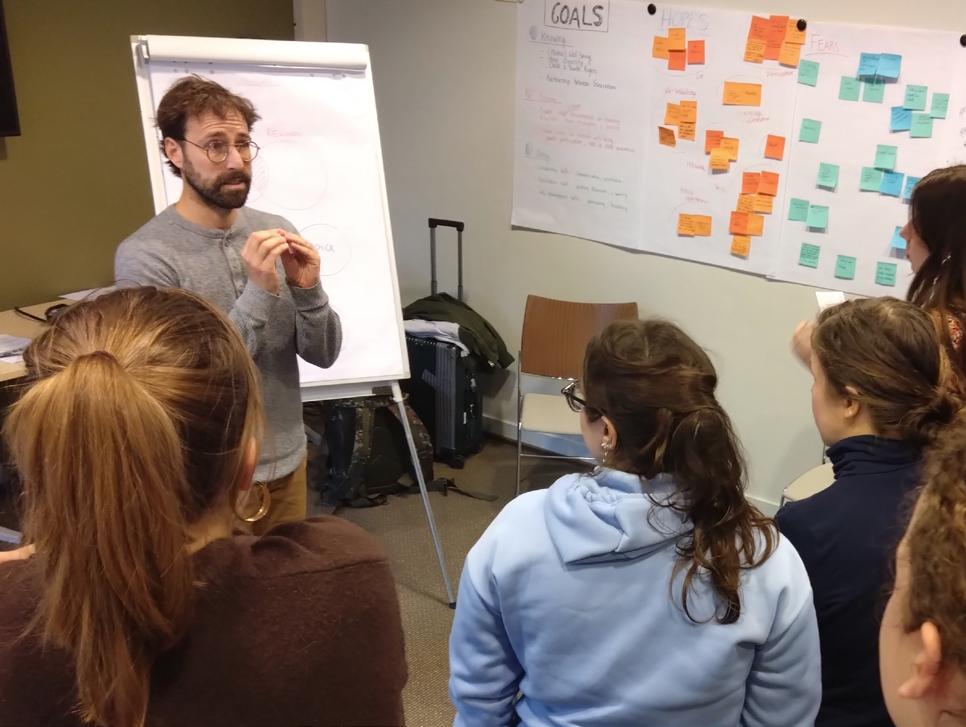
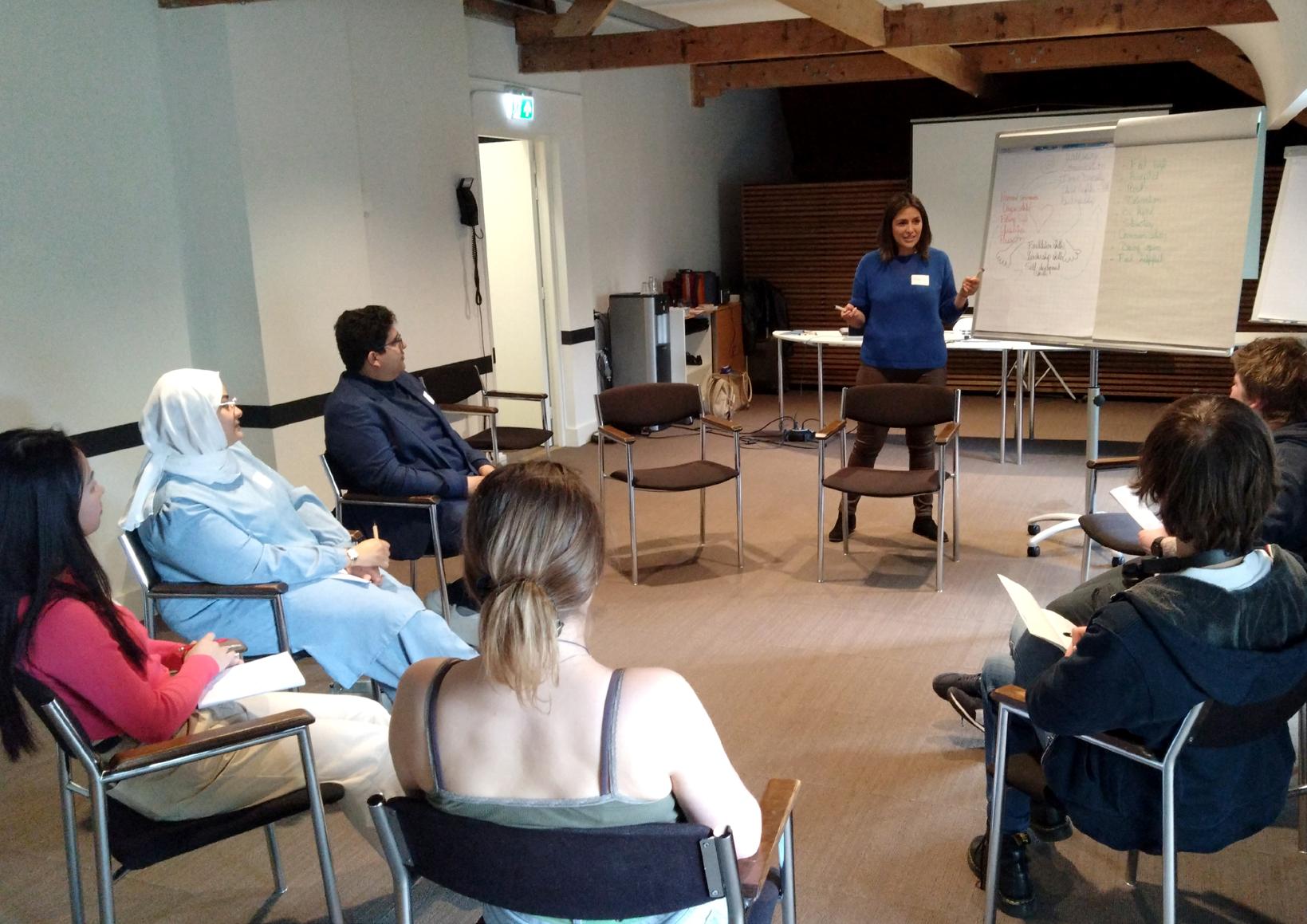
Germany
In Germany, the Kinderrechte Forum (Child Rights Forum) took over the implementation of Act2gether in 2023, building upon a strong network established by our partner, the Bertelsmann Stiftung. To ensure alignment, the L4WB team provided a comprehensive three-day training to the KRF team in Cologne in January, immersing them in the core of our approach. In its first year, KRF focused on addressing mental health issues among young people and children.
In its first year, KRF focused on addressing mental health issues among young people and children. In June, they hosted their first 2getherLAND camp in Cologne, promoting mental health and well-being. The camp brought together 40 teenagers and adults for informative sessions, workshops, and leisure activities, encouraging participants to engage deeply with mental health topics and improve their well-being.
In September, Act2gether Germany was represented by Üwen Ergün, CEO of KRF, in the QoC session “Environments for children and youth and mental health: evidence and youth perspectives” at the European Parliament, where he shared their experience in improving the mental health of children and young people in Germany.
Additionally, they developed social media campaigns focusing on child rights, mental health, well-being, and participation.
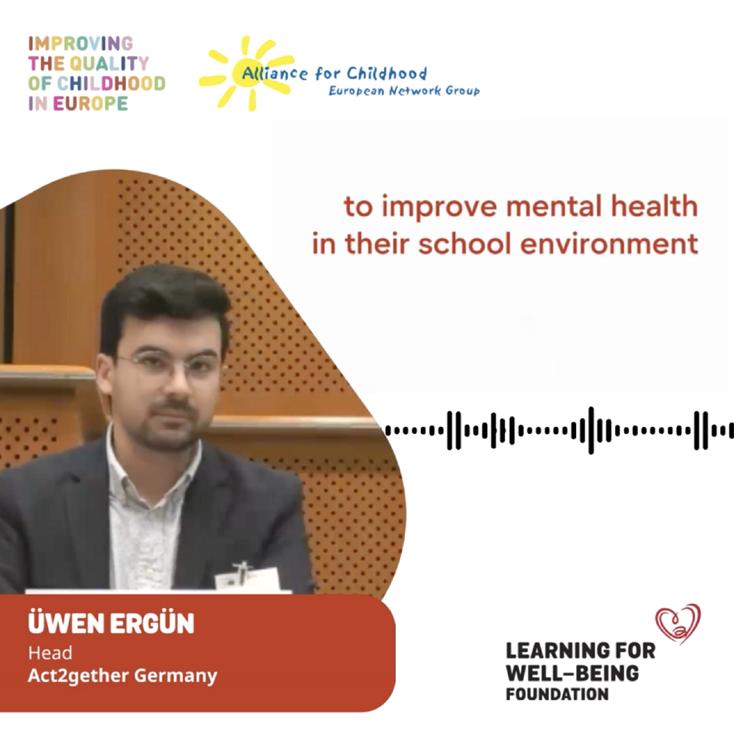
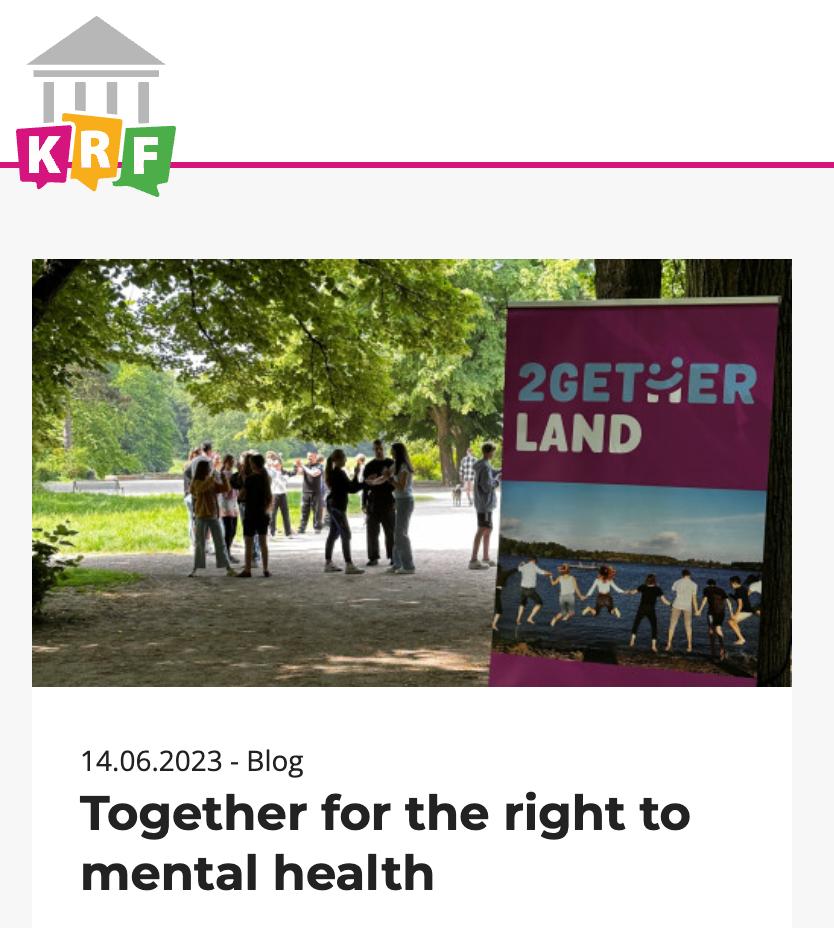
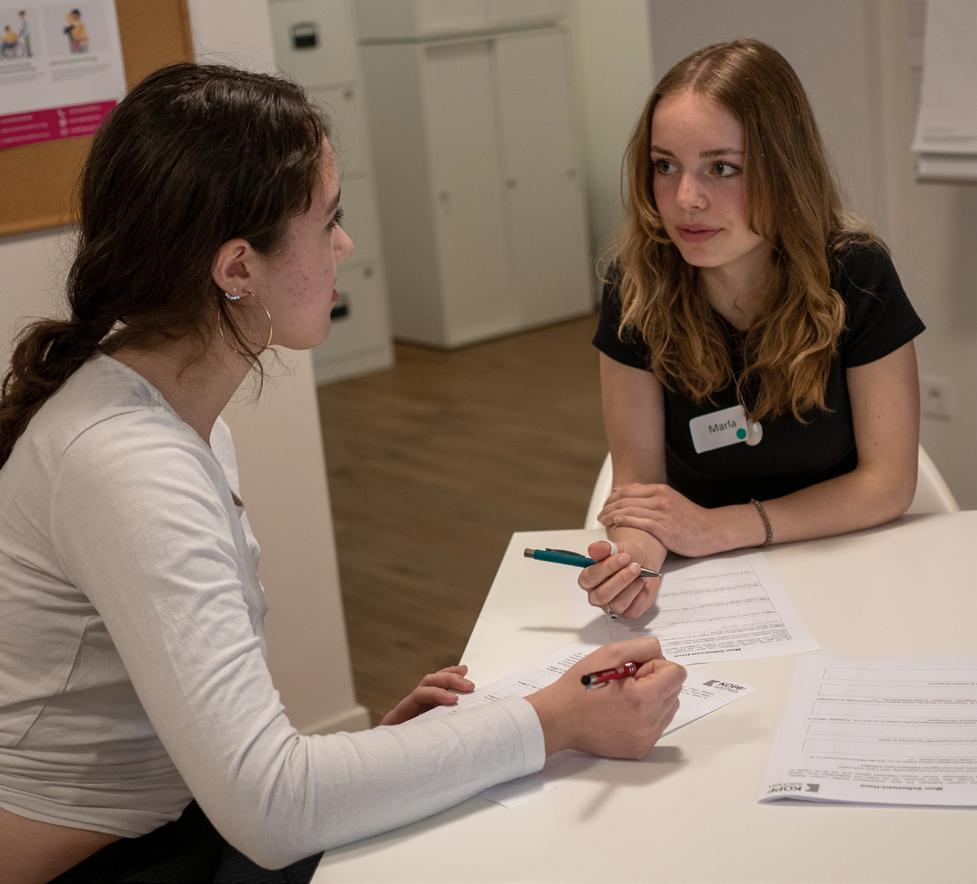

2023 At a glance
Bolivia
Over 200 Committees established nationwide, with the situation of the Committees in the country mapped.
10 schools in La Paz participated in the third edition of the ‘Accionando’ contest, 4 proposals were awarded.
1300+ primary-level students empowered within the ‘Accionando’ contest.
Over 200 people participated in the training process part of the ‘Child-Friendly Municipality’ programme by UNICEF.
Teachers from over 10 schools in La Paz will be involved in the next stage of the ‘Promoting Participation from the Roots’ toolkit implementation.
Germany
Three-day training provided to the KRF team in Cologne.
40 teenagers and adults participated in the 2getherLAND camp
Representation in the QoC session at the European Parliament.
Development of social media campaigns focusing on child rights, mental health, wellbeing, and participation.
Palestine
Media training at Birzeit University’s Media Development Centre included team members and children from the Advisory Group.
Workshops in two schools trained 85 adults and 120 children in communication skills and stress management strategies.
Training sessions in Ramallah included 25 students and 60 teachers to promote child protection and ensure safety and well-being in schools.
Several activities targeting children and young people, implemented with partners.
Signature of multiple interinstitutional agreements to carry out joint projects.
The Netherlands
Two trainings tailored for individuals aged 17 to 26.
Over 20 young people positively impacted.
Advancing Children’s Rights Network
Advancing Children’s Rights Network (ACoRN), a collaborative initiative spearheaded by University College Cork, Ireland, and the Learning for Well-being Foundation, funded by the Botnar Foundation, is dedicated to enhancing the realization of children’s rights. Operating in Israel and Palestine as two distinct yet parallel projects, ACoRN focuses on amplifying knowledge, fostering connections, and strengthening capacity to promote children’s rights & well-being and the adoption of children’s rights-based approaches.
The Learning for Well-being Foundation implements the project’s Social Strand, which entails ongoing community and capacity building for children, young people, and accompanying adults and supporting individuals and organizations dedicated to child-led social action in local communities. These activities are executed under the Act2gether brand, our intergenerational partnerships programme. Through inclusive collaboration with children, youth, and their supporting adults, we strive to create impactful change and empower the younger generation.
Throughout 2023, efforts concentrated on establishing local teams and Child Advisory Groups and conducting comprehensive training sessions to equip them with the necessary skills to implement the project effectively.
Key milestones included children’s involvement in staff selection, a five-day onboarding training covering child rights and participation, and curriculum development for gatherings. Child and Youth Advisory Boards were also established for each location.
Post the October 7th upheaval in the region, a reconfiguration and adjustments to project delivery and approach were necessary. The project has been reconfigured and reinstated from June 2024.
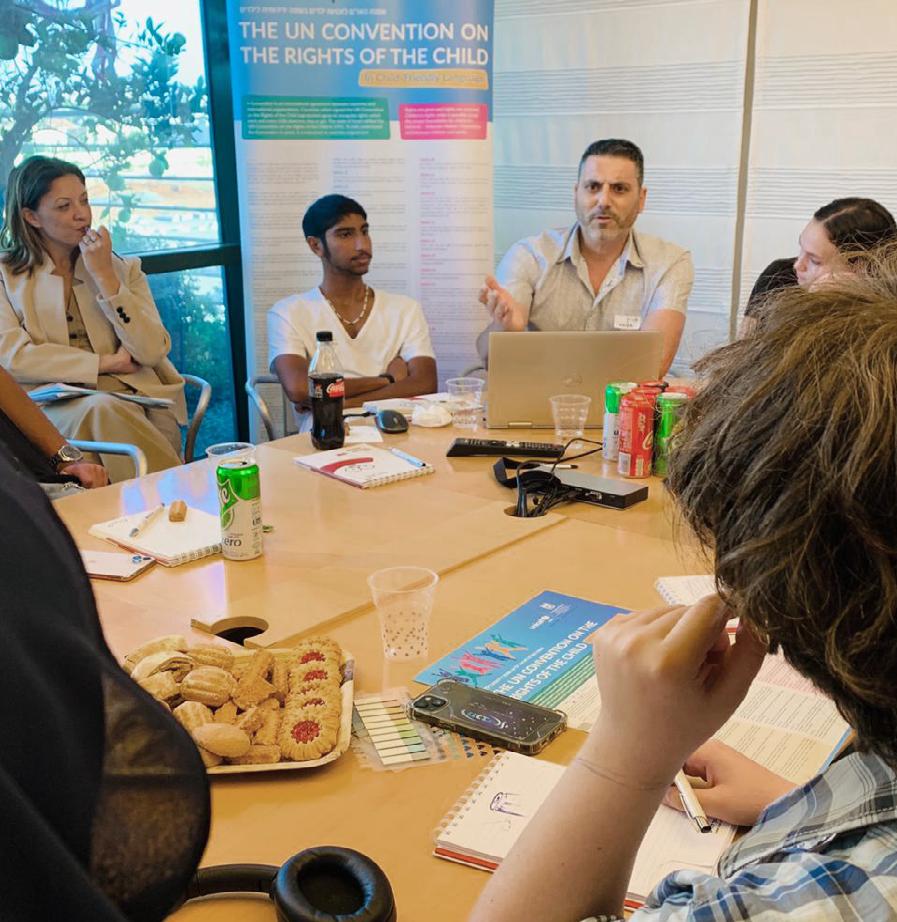
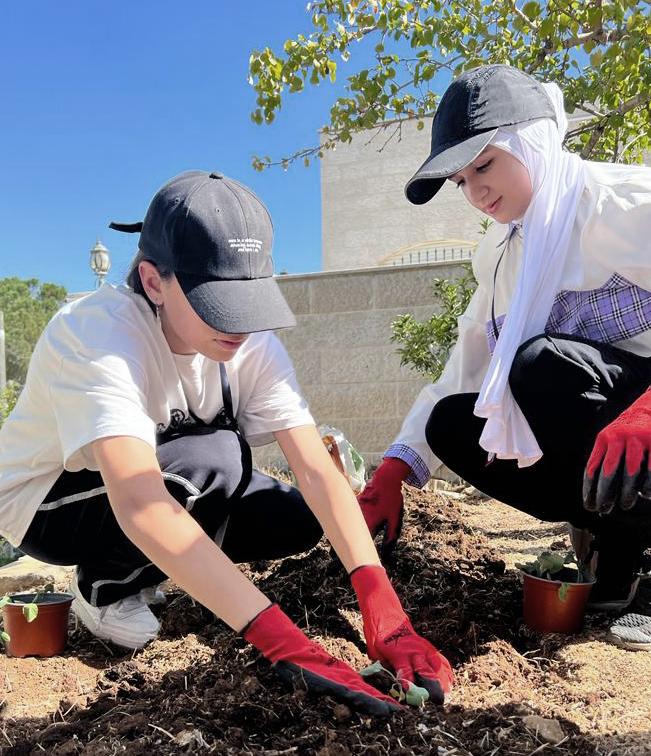
CREATING & SHARING KNOWLEDGE
We aim to be catalysers of expanding valuable knowledge, creating it, and actively proposing new ways to access it.
In this area, our work encompasses publications, research and dissemination, and sharing stories and information in line with the Learning for Well-being framework.
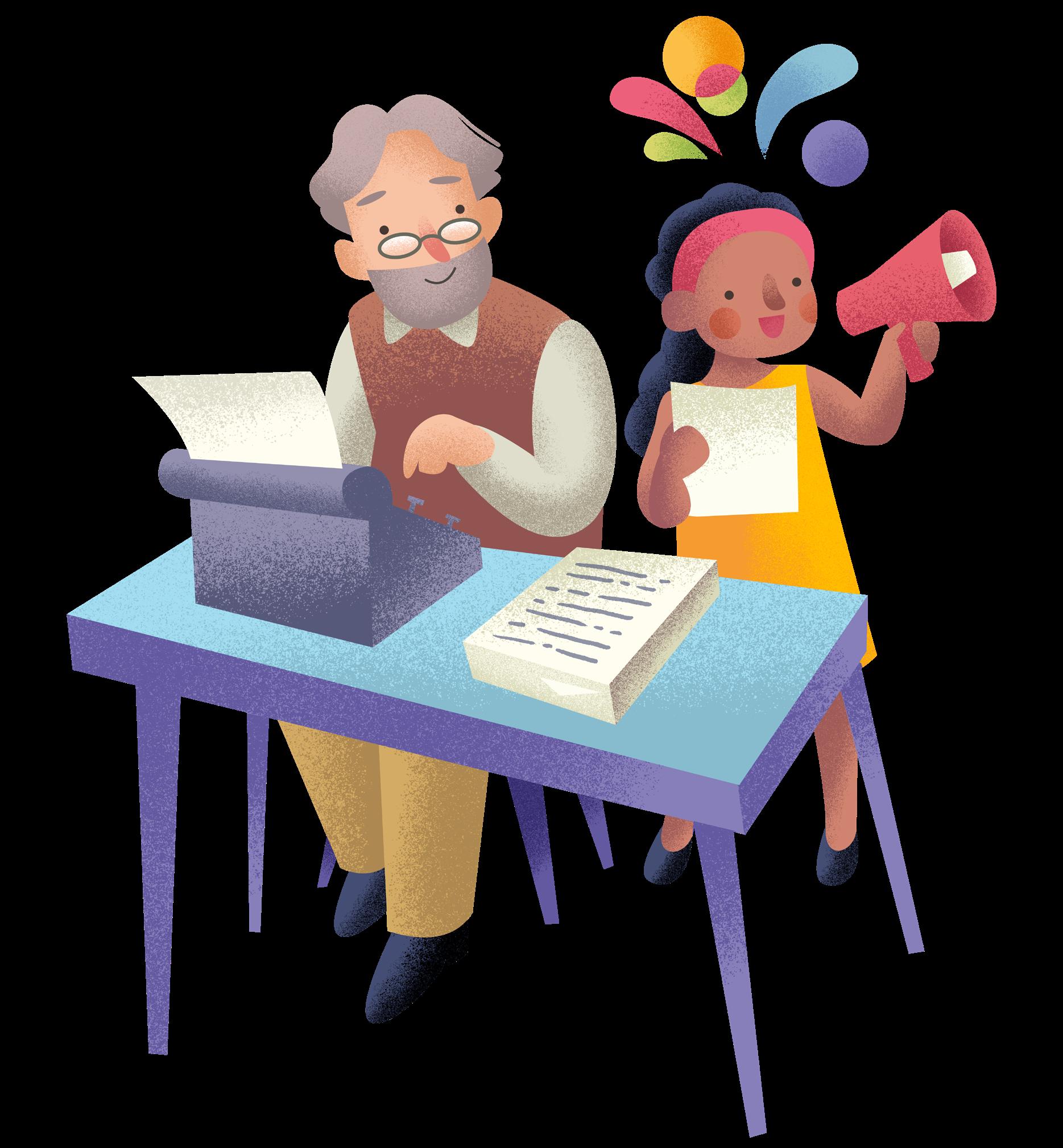
QoC Sessions
As part of our longstanding relationship with the Alliance for Childhood European Network Group, we collaborated on hosting the Quality of Childhood sessions at the European Parliament. These sessions serve as a vital bridge between policymakers and civil society, offering fresh insights from practitioners and researchers on enhancing children’s well-being and development across Europe.
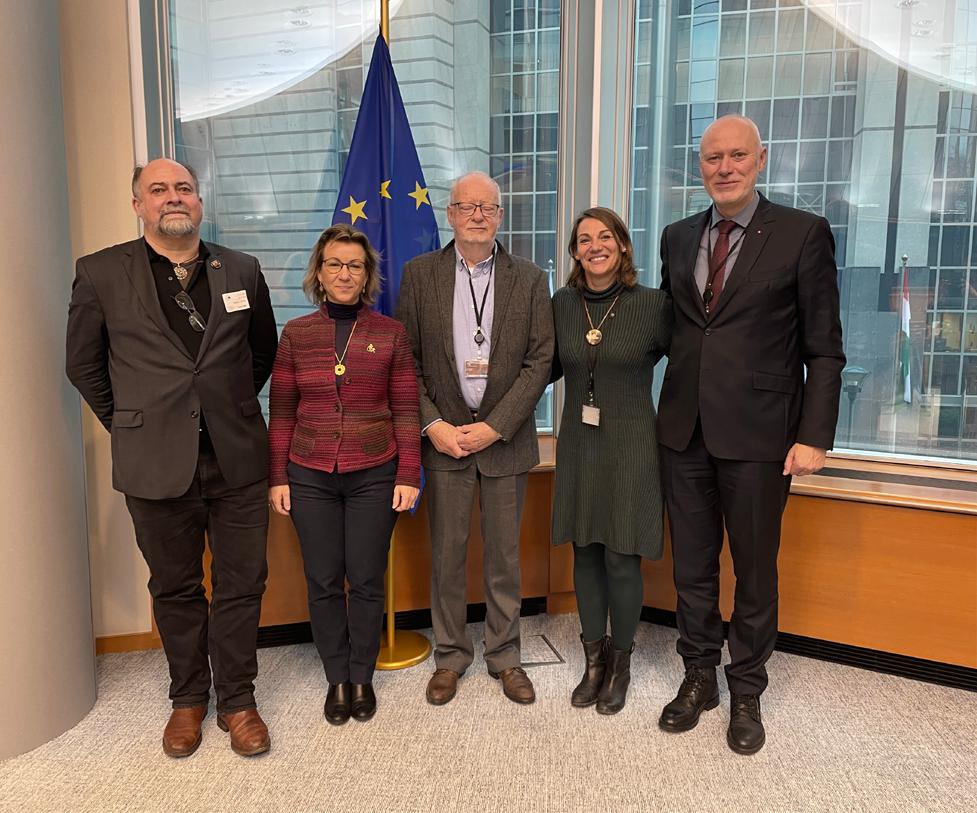
SESSIONS
Here’s a snapshot of the themes explored in these sessions:
March: Advocating for quality family support as a fundamental right for all children, emphasizing the importance of supporting families to meet children’s needs.
May: Delving into the cost-effectiveness of trauma-informed approaches, spotlighting three effective strategies for addressing adversity and trauma in childhood.
September: Exploring the nexus between environments for children and youth and mental health, featuring evidence-based insights alongside perspectives from youth themselves.
December: Focusing on trauma-informed approaches within services catering to young children and their caregivers, underlining the significance of early intervention and support.
Agendas and recordings of most sessions can be accessed on the Alliance for Childhood European Network Group’s website.
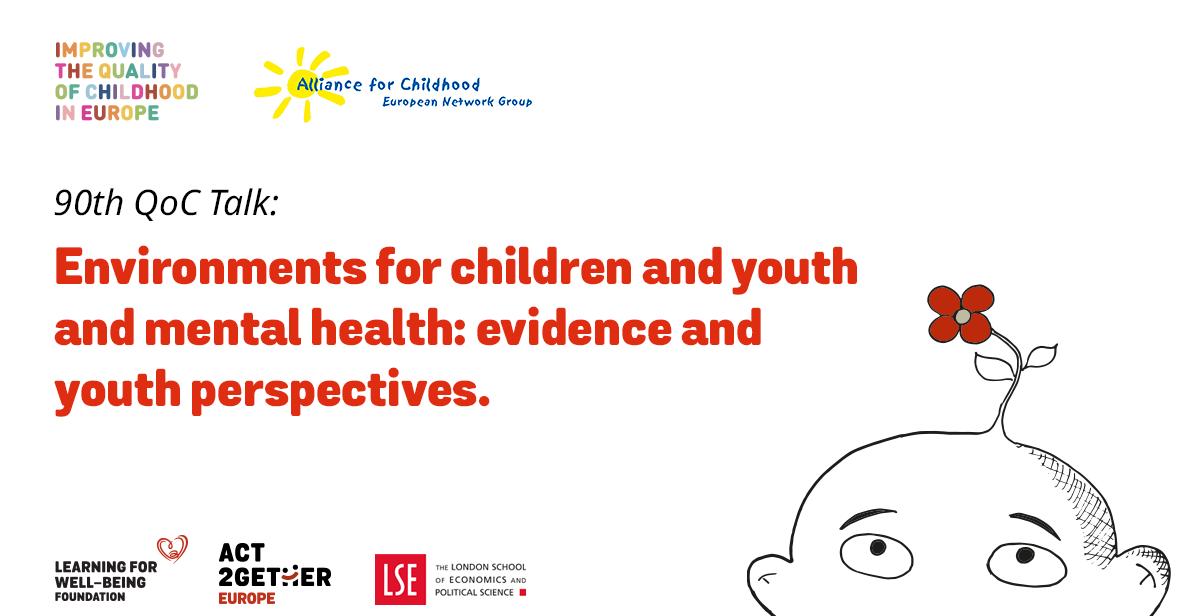
The Learning for Well-being Institute • L4WB-i
In 2023, the Learning for Well-Being Institute was established as an independent research entity to work in collaboration with the Learning for Well-Being (L4WB) group. Its mission is to utilize rigorous research and purposeful collaboration to promote the L4WB approach at the heart of global policymaking and drive lasting and impactful change in child education, health, and social welfare globally.
The institute will also conduct research to produce actionable evidence that our partners and we can implement to foster well-being across various sectors.
In its first year, the Learning for Well-Being Institute made significant strides by forming key alliances with international organizations including UNICEF, UNECO and the ILO, producing high-quality research, and laying the foundation for future growth.
Inclusion Box • iBox
The Inclusion Box (iBox) project, co-founded by the European Union, seeks to ensure more inclusive organizations, education approaches, and actions through capacity-building processes to better face and respond to current and future societal challenges.
Piloted by a consortium formed by the Learning for Well-being Foundation, Cémea France, ALL DIGITAL, and led by the Lifelong Learning Platform, the project operates in three key areas: digital inclusion, diversity and inclusion, and access and participation. It intends to develop innovative training resources collected in an online platform to support the digital transition, access and participation in learning processes, and inclusion and diversity strategies in the sector.
In 2023, the project started producing a Compendium of Inspiring Practices, featuring over 100 examples from educational establishments and civil society organizations across local to EU levels. Additionally, the design, development, and implementation of three training programs began in July 2023, with a rollout planned for 2024. These programs will include both online and face-to-face components.
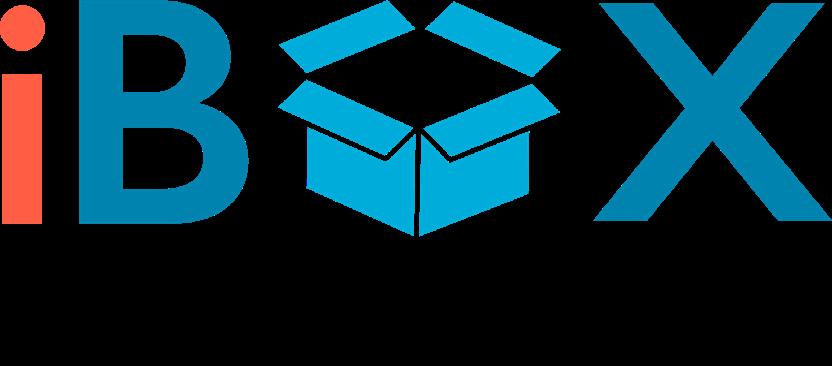
LEARN MORE
LEARN MORE
International & Canadian Child Rights Partnership
Our collaboration with the International and Canadian Child Rights Partnership (ICCRP) on child rights continued, focusing on how intergenerational connections can overcome obstacles to uphold children’s rights through research, policy, and practice. Several meetings, discussions, and activities were conducted to promote intergenerational partnerships and encourage children’s involvement in discussions on issues that affect them.
Learn about the right to participation in Bolivia
During the International Summer Course on the Rights of the Child, hosted by The New Brunswick Office of the Child and Youth Advocate and the Université de Moncton in June, ten young Intergenerational Advisory Committee members created five posters about child rights. Topics included Child Rights Impact Assessments, child activism, mental health, and the right to participation in Bolivia. Juan Angel, a member of the Bolivian National Committee representing the Learning for Well-being Foundation as part of the ICCRP Advisory Committee, created one of these posters. His activism and leadership were also featured in one of their newsletters.
Global Voices Podcast
Global Voices originated as a project by Act2gether Youth, empowering young people from diverse backgrounds to share their perspectives on issues that matter to them. After two successful years of online activities—including social media campaigns, live discussions, event participation, and collaborations with various organizations—the diversity of opinions highlighted the value of these safe, informed spaces.
In 2023, Global Voices was reimagined as a podcast. Five episodes were recorded, providing young people with platforms to voice their opinions and discuss relevant topics. Hosted by Arshad Mozumder, the podcast featured insightful conversations with activists like Ila Malhota Gregory on the importance of intergenerational partnerships in fostering community change. Another episode addressed imposter syndrome, with young activists Staša Ovetkovic and Emily Peters sharing their experiences and insights, sparking engaging dialogues. Additionally, one episode featured two of our Board Members, Andri and Miguel, discussing the issue of youth washing. ACTIVITIES
These diverse conversations and experiences reaffirm our belief in the power of sharing ideas and stories and the ongoing need to create safe spaces for young people to express themselves.
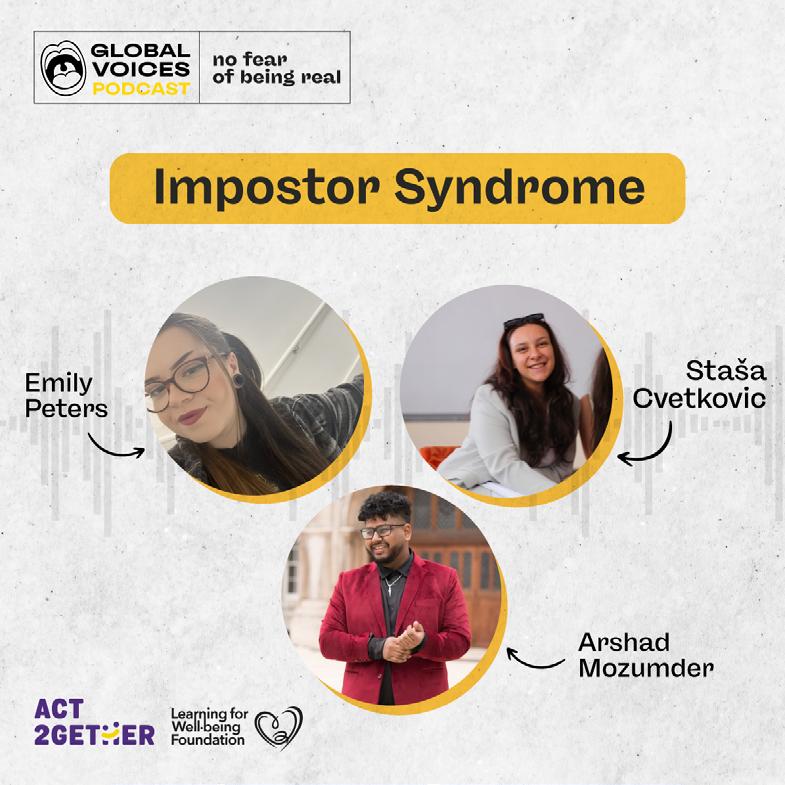
EPISODE 2
POSTER
Handbook of Children and Young People’s Participation
We contributed an article to the new edition of the “Handbook of Children and Young People’s Participation,” launched in June. This updated handbook reflects on significant developments in the field since the original 2010 edition, highlighting advancements in theory and practice over the past decade while addressing the challenges and limitations of current participation approaches in achieving true societal transformation. A notable feature is the inclusion of young people as co-authors in many chapters.
Our contribution, titled “Transformative Spaces: Intergenerational Partnership and Personal Transformation at the Heart (and Art) of Child Participation,” captures insights from our experiences organizing C.A.T.S. (Children as Actors for Transforming Society) and applying this knowledge to Act2gether initiatives, particularly 2getherLand gatherings.
Statement on Child and Youth Mental Health in Europe
The Learning for Well-being Foundation, Alliance for Childhood—European Network Group, StArt International, and EMDR Europe Association developed the “Statement on Child and Youth Mental Health in Europe.” Key findings reveal that poor mental health significantly hinders child development and wellbeing, affecting individuals, their futures, families, and communities.
The statement offers recommendations for long-term, progressive change, emphasizing that investing in mental health is investing in everyone’s future and was presented during the 90th QoC Talk: Environments for children and youth and mental health: evidence and youth perspectives by Dominic Richardson, Managing Director of the Learning for Well-being Institute and Director of Research of the Leaning for Well-being Foundation, who also led the research.
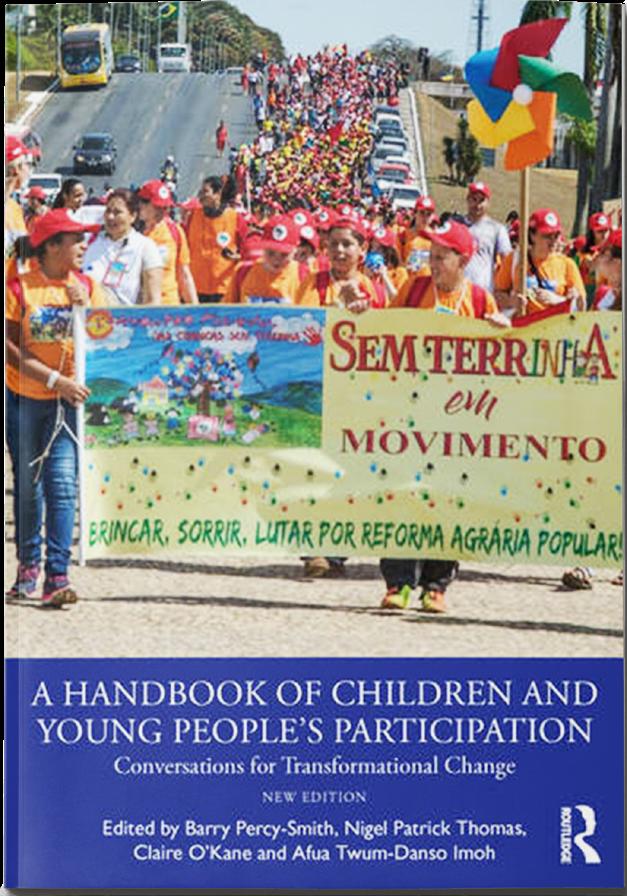
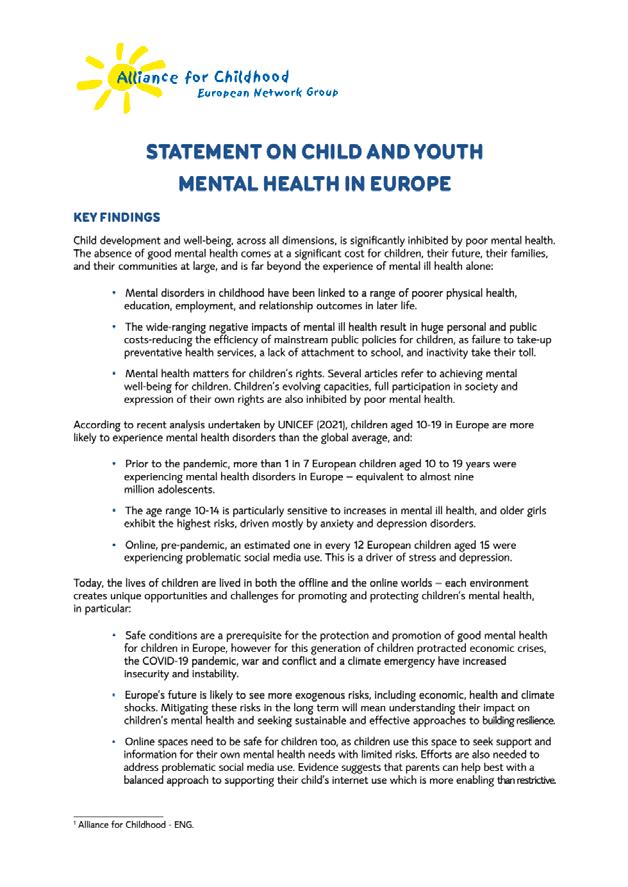
LEARN MORE PURCHASE
CAPACITY BUILDING
We view children, parents, and child-focused practitioners as mutually dependent catalysts for change. Some of our programmes are dedicated to enhancing their capacity to foster holistic well-being within their respective environments. This work encompasses activities such as training and facilitation, school-based programs or interventions, and the development of learning resources.
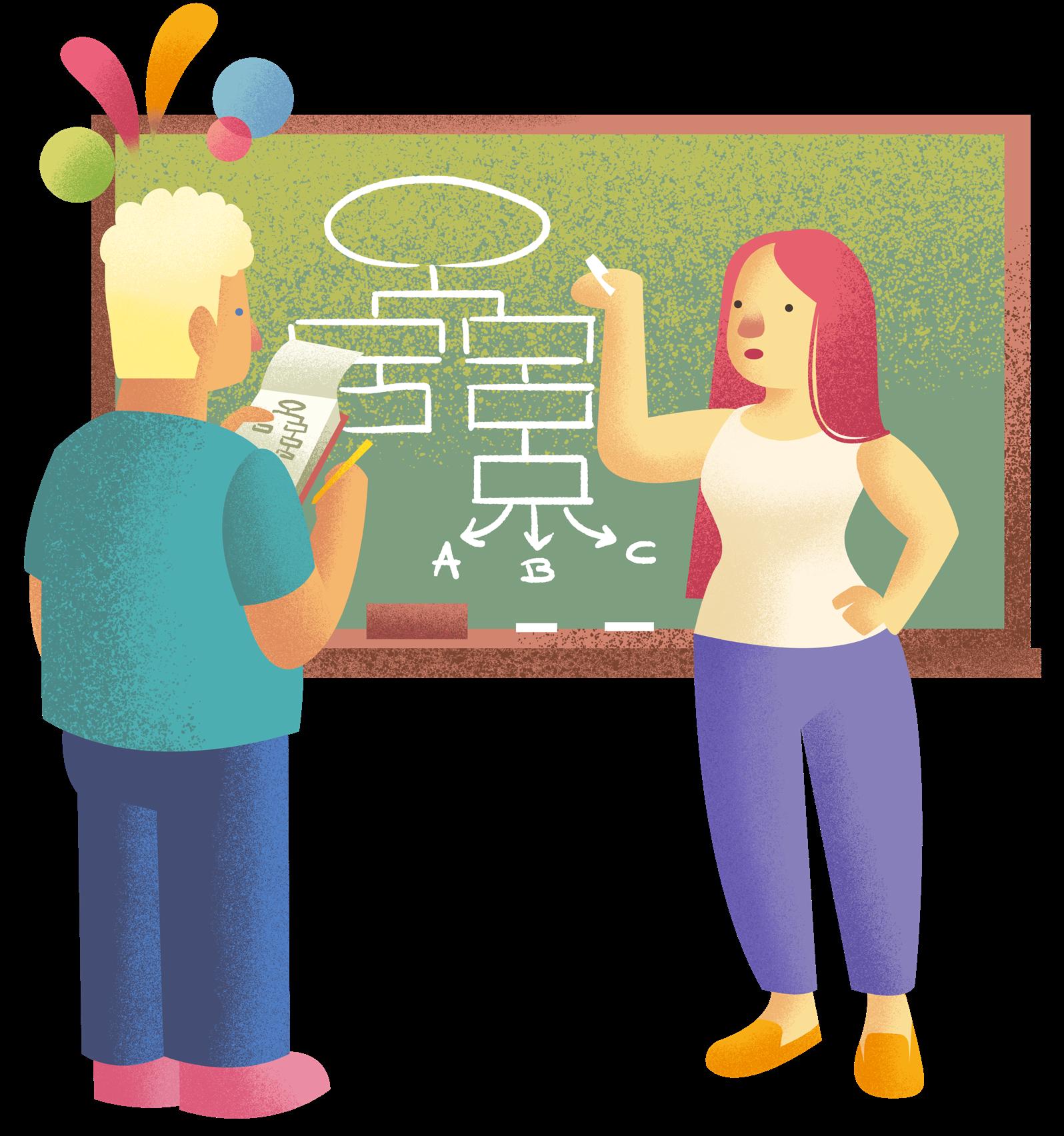
School Community & Training
Education for Life continued working with schools in Israel, delivering training to help children and staff explore their inner diversity and realize their unique potential through core capacities practice. In addition to ongoing work at Savyon Middle School and Rabin School, two new schools joined the initiative to create collaborative activities.
At Ironi H’ Junior High in Haifa, the team successfully implemented a well-being program for 7th graders. This programme has been instrumental in easing their transition from elementary to junior high, equipping students, parents, and teachers with mental resilience, calmness, and optimal communication tools, fostering a positive and supportive learning environment.
An empowerment programme was introduced at Ort Lod Leadership School. It targeted the educational staff, the school principal, and a group of children and aimed to create a cohesive team committed to the school’s goals.
Assistant Teachers’ Programme
A new programme for educational assistants in the ‘Hevel Modi’in’ councils also started in 2023. It seeks to train teacher assistants to become significant educational caregivers in kindergartens by deepening their understanding of their roles and impact.
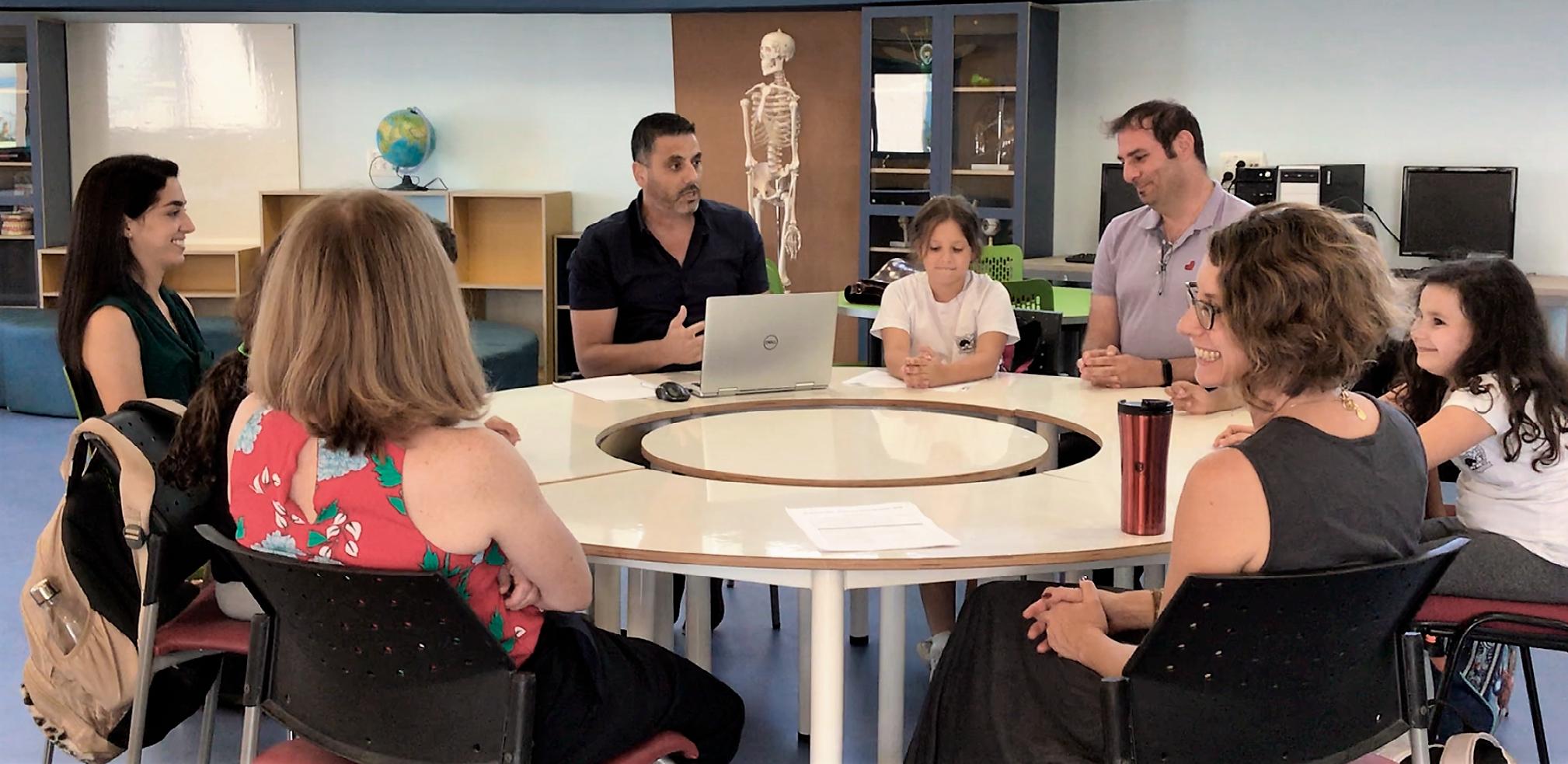
INFLUENCING & ADVOCACY
Our approach extends beyond using evidence to sway decision-makers or altering discourse and practices that impact children. It also involves creating value through collaborative partnerships with like-minded organizations.
This domain encompasses activities aimed at influencing policy, key stakeholders, and public opinion.
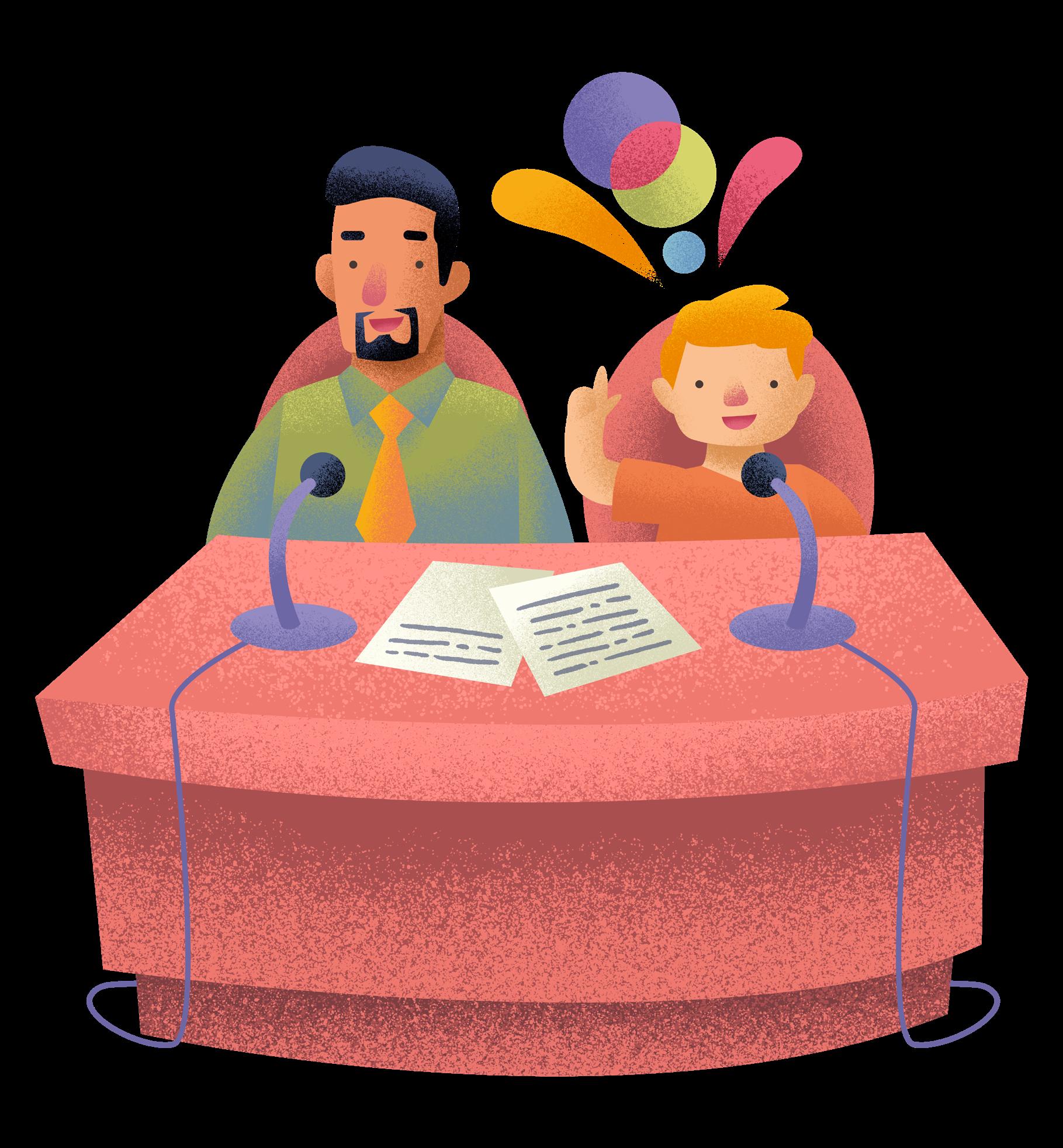
Networks and events
As part of our advocacy efforts, we actively participated in several events, strengthening our networks.
Philea
Our work as chairs of the Children and Youth Thematic Network continued with the aim of fostering collaboration and advancing meaningful youth participation in philanthropy. We started designing a peer-learning journey, “How to Involve Children and Youth in Your Work,” a series of online webinars to be held throughout 2024.
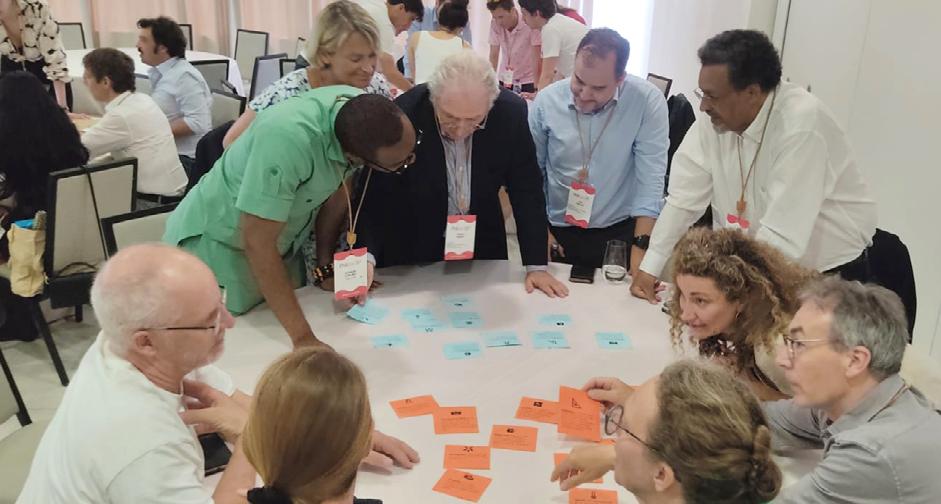
Alliance for Childhood European Network Group
In 2023, we deepened our collaboration with the Alliance for Childhood European Network Group, working hand in hand to renew their organizational model, which adopts the Learning for Well-being framework. Their new handbook displays these changes.
CRC • Core Capacities
Following Fondazione CRC’s interest in applying the L4WB framework to its workshops, we supported the design of their first workshop on Core Capacities.
Philea Forum 2023
At the Philea Forum 2023, our Managing Director, Yakarah Attias Rosen, co-facilitated a workshop titled “Finding Common Ground between Generations: Philanthropy Turning this Gap into an Opportunity.” The workshop delved into the untapped potential of intergenerational collaboration, addressing the pressing challenges faced by our increasingly polarized society. With a specific focus on the upcoming EU elections in 2024, it aimed to help participants explore the merits of an intergenerational perspective, introduce innovative methodologies, and unlock the transformative power that lies within.
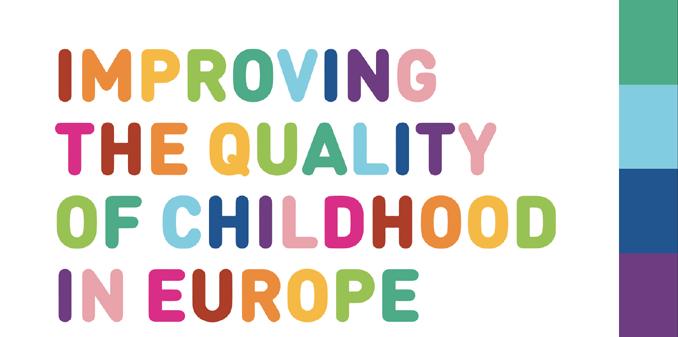
HANDBOOK
Assifero
Our Chair Founder, Daniel Kropf, participated in the Assifero Partners Assembly 2023, where he highlighted our work on intergenerational partnerships.
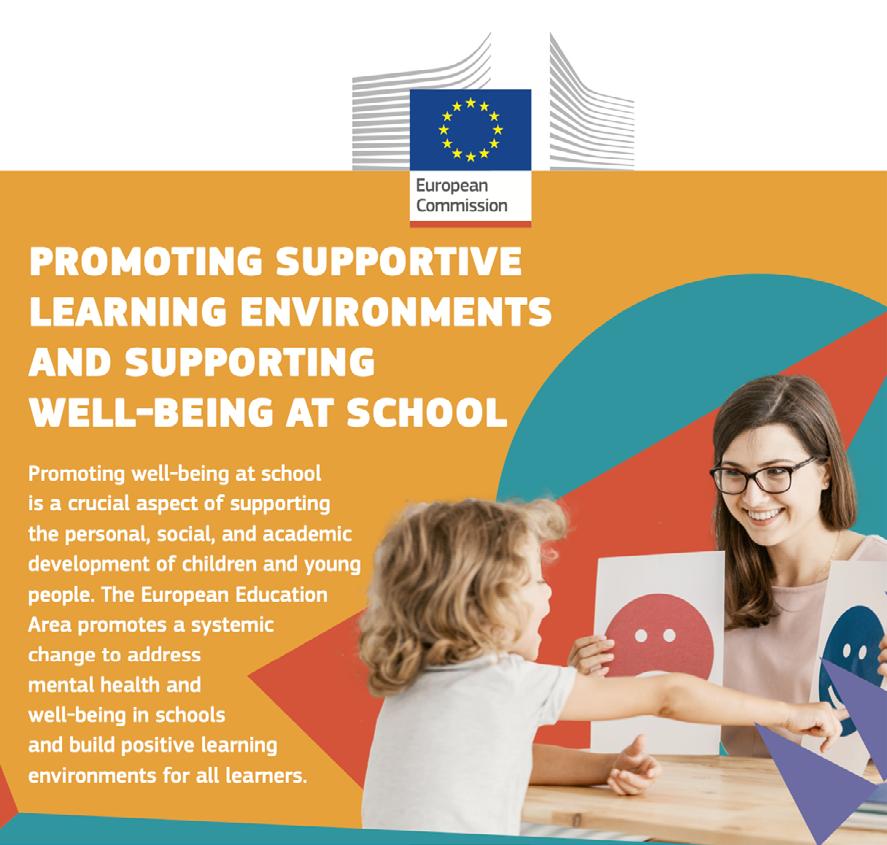
European Commission Expert Group on Well-being at School
Chiara Piccolo, our Head of European Affairs, was selected to be part of the EC Expert Group on enhancing supportive learning environments for vulnerable learners and promoting well-being and mental health at school.
This Expert Group (a spin-off of the EC Working Group Pathway to School Success) was to draft guidelines for policymakers, teachers, and educators on how to apply the whole-school approach in school environments and include well-being and mental health as one of the educational goals. These guidelines will be published in 2024.
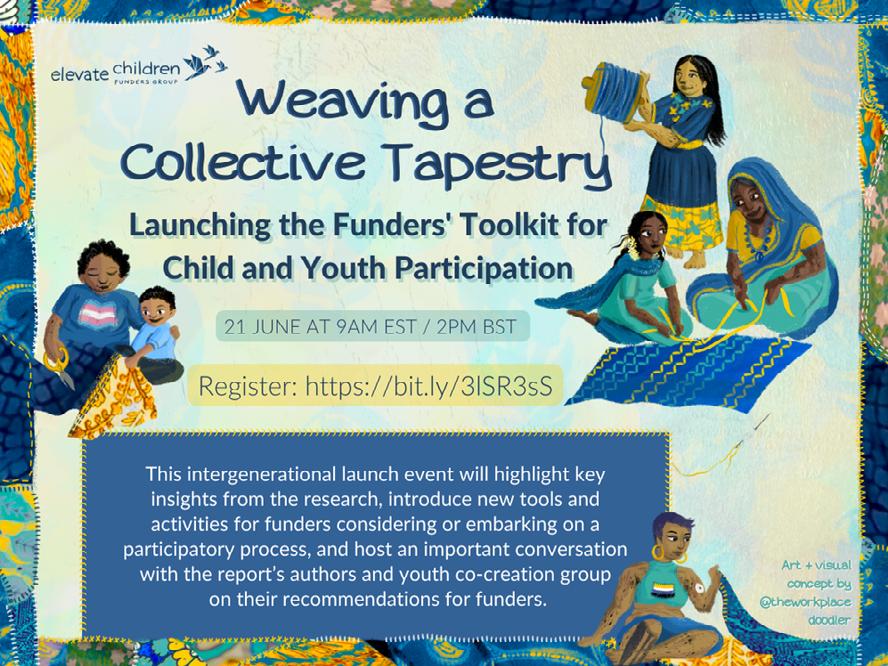
The Learning for Well-being Foundation is an active Lifelong Learning Platform (LLLP) member. We serve as Co-Chairs of the Wider Benefit for Learning workgroup and are part of the consortium implementing the iBOX project, which we presented at the Stakeholder Forum during LLLP Week 2023.
Elevate Children Funders Group
We remained active participants in the Elevate Children Funders Group activities; our Foundation’s Intergenerational Board was featured as an example in the Funders Toolkit on Child and Youth Participation.
CRAG
As members of the Alliance for Childhood, we co-chaired the Child Rights Action Group (CRAG). Our responsibilities included involvement in the EC Children Participation Platform as part of the Advisory Board and starting to prepare the Vote for Children Campaign for the upcoming EU elections.
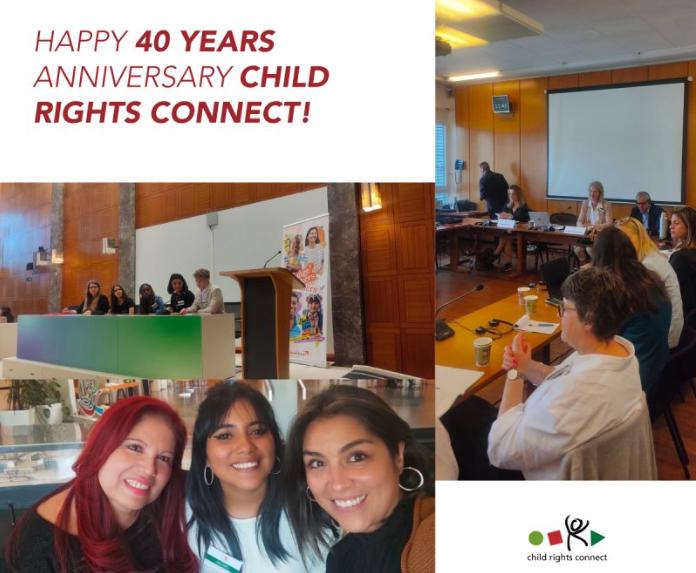
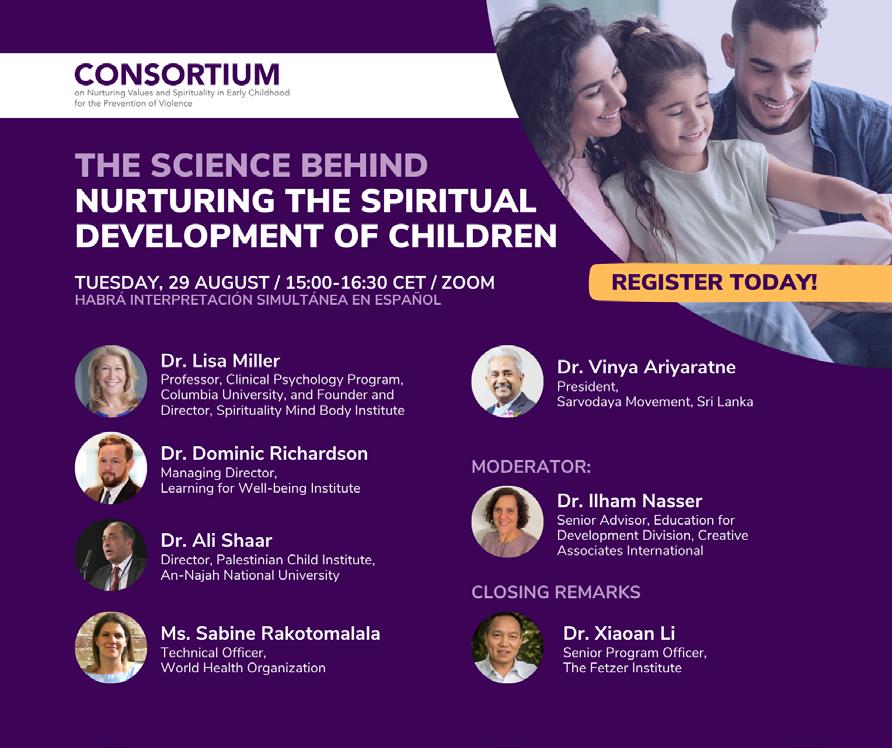
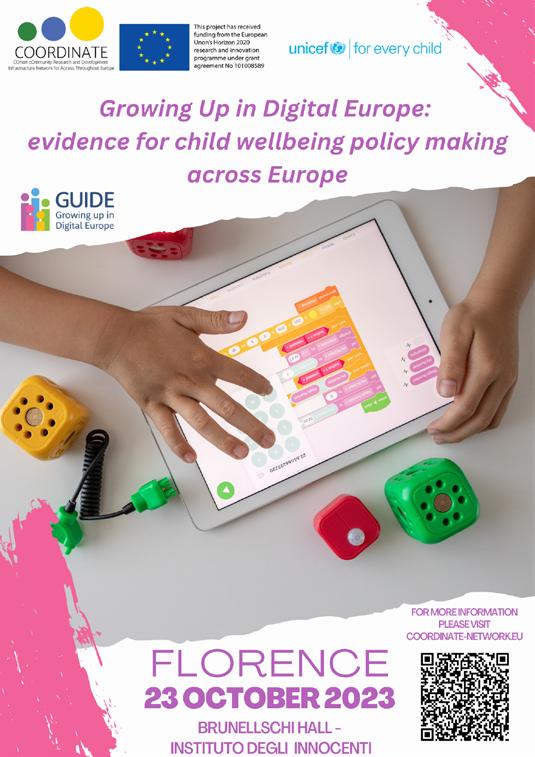
Child Rights Connect
Maria Belen Paz Aguilar, our Development Director at the Learning for Well-being Foundation, was elected Vice President of the Executive Committee. She represented us in Geneva during Child Rights Connect’s 40th Anniversary Conference.
EXECUTIVE COMMITTEE
Consortium
“The science behind nurturing the spiritual development of children”
Dominic Richardson, Managing Director of the Learning for Well-being Institute and Director of Research of the Leaning for Well-being Foundation, presented the results of the What Makes Me? Report on the webinar titled “The Science Behind Nurturing the Spiritual Development of Children,” organized by the International Consortium on Nurturing Values and Spirituality in Early Childhood for the Prevention of Violence.
GUIDE Conference Growing Up In Digital Europe: Evidence for child well-being policy-making across Europe
Also represented by Dominic Richardson, we participated in the Growing up in Digital Europe: Evidence for Child Well-being policy-making across Europe event, with a presentation about the findings of the What Makes Me? Report. This event aimed to collect objective and subjective well-being measures to ensure that social policies are evidence-based.
THE FOUNDATION
Our story and the people who contribute their time and expertise as board members, staff, or close collaborators are at the heart of our organization.
Activities in this realm encompass training for professional development, team and board meetings and retreats, and developing policies and guidance documents.
Team retreat
In November, we held an in-person retreat in Brussels, bringing team members together for a strategic planning experience. Through collaborative sessions, we reflected on our activities, reviewed our goals, and planned for the coming year, laying the groundwork to expand and elevate our work.
Child safeguarding policy
Another important milestone was completing a revised version of our Child Safeguarding Framework and accompanying policy, demonstrating our commitment to child protection in every aspect of our activities, processes, and procedures.
The framework outlines our comprehensive Child Safeguarding policies and procedures based on internationally recognized standards, local legal requirements, and our team’s knowledge and experience. Implementing these policies reaffirms our dedication to supporting each child’s holistic well-being and ensures that Child Safeguarding remains an active part of our work.
Building capacity among our team
Recognizing the importance of continuous growth, we organized various team development opportunities covering aspects such as digital communications and safeguarding policies. Additionally, external capacity-building activities included sessions on Trauma and Somatic Experiencing, expertly led by Gina Ross.
GDPR manual
To continue strenghtening our policies, we collaborated with Richard Mawutor Dzikunu to develop a new GDPR manual for the Learning for Well-being Foundation, ensuring our compliance with the General Data Protection Regulation criteria.
Following the completion of the manual, all team members were trained in basic GDPR rules to safeguard the data of all children and adults involved in our programmes worldwide.
Board meetings
Our quarterly board meetings adopted a dynamic hybrid format this year, with two held online and two in person, recognizing the high value of faceto-face interactions. These meetings included the Chair and Founder, Managing Director, Board Members, and our Directors to foster more direct interaction between our board and executive team. These sessions were critical for refining plans to develop the foundation further. While the core aim of these meetings is to follow up on the foundation’s work and its various programs, the in-person encounters also allowed for personal connections and reflection.
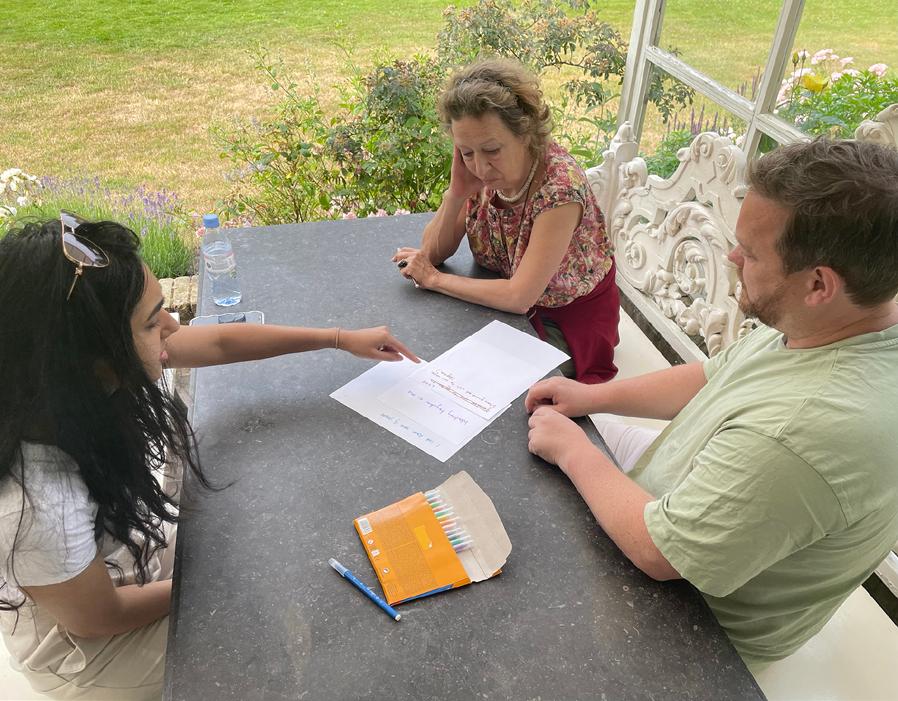
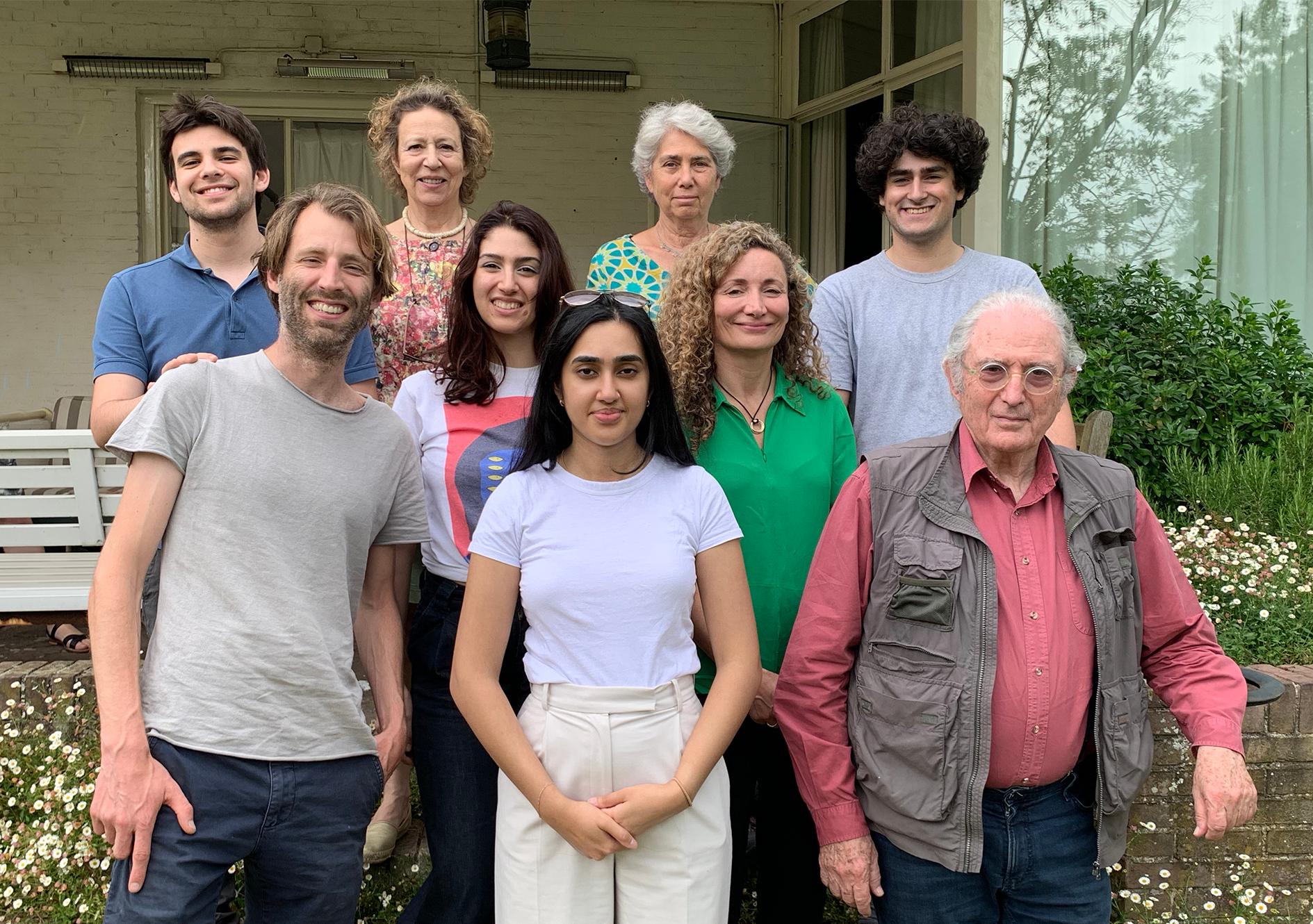
Refreshing our visual identity
Aiming to boost our outreach and advance our vision, we recognized the need to redefine our visual identity to align our graphic symbols and strengthen our brand. We partnered with renowned creative consultant Ahmer Kalman from the Design Hierarchy agency to achieve this.
Kalman combined elements from two of our most representative brands to create a cohesive visual style. He combined the Elham heart, the distinctive red, and the soft-edged Act2gether typography to form a renewed logo for the Learning for Well-being Foundation. This design became a visual key, setting the tone for aligning the logos of our partner organizations and giving prominence to our distinctive symbol.
Additionally, our Act2gether visual identity underwent refinement to ensure its cohesion with the visual system. Its colour palette was updated, and a customized sticker of the Learning for Well-being approach was developed to complement the primary logo.
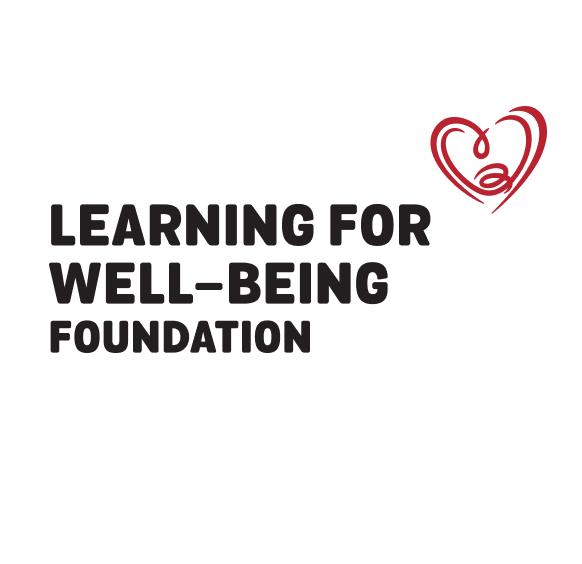
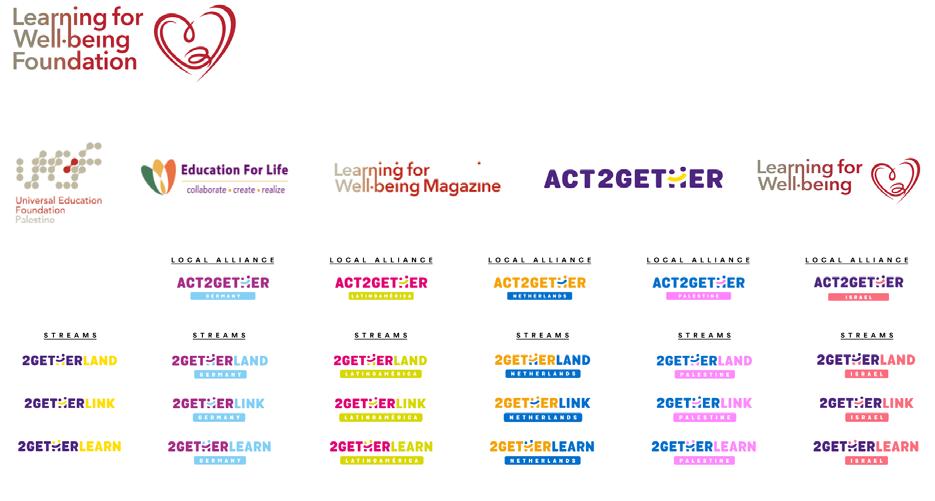
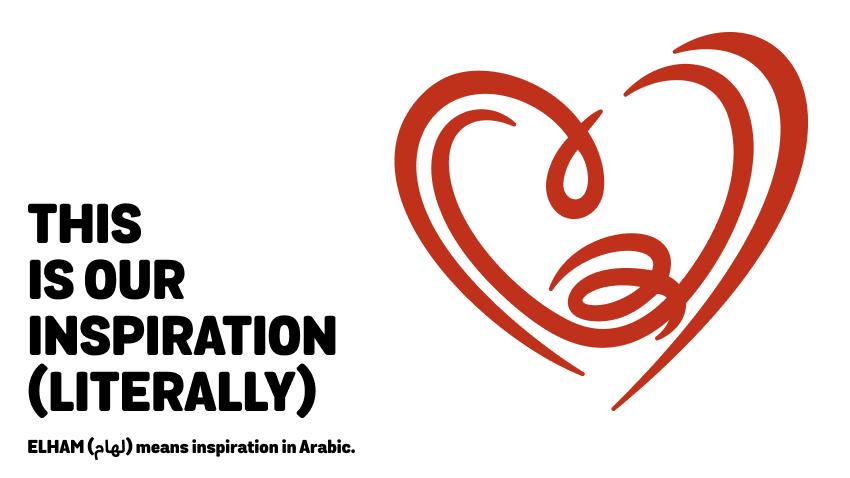
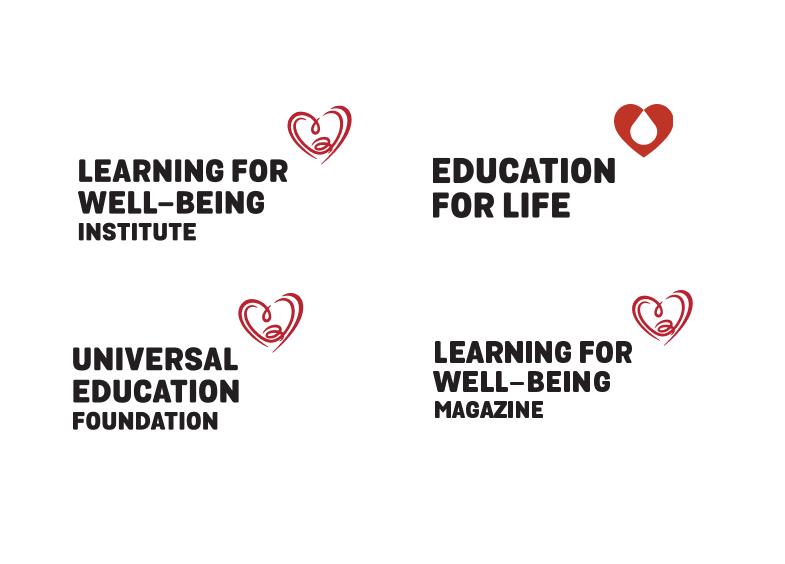

LOOKING FORWARD
WHERE WE ARE HEADING
Towards the end of 2023, we aimed to broaden our impact and address relevant topics by redefining our areas of impact for the coming years.
Our goals will focus on the following two areas: School Reform and Holistic Well-being, both embedding Intergenerational Collaboration to achieve these goals.
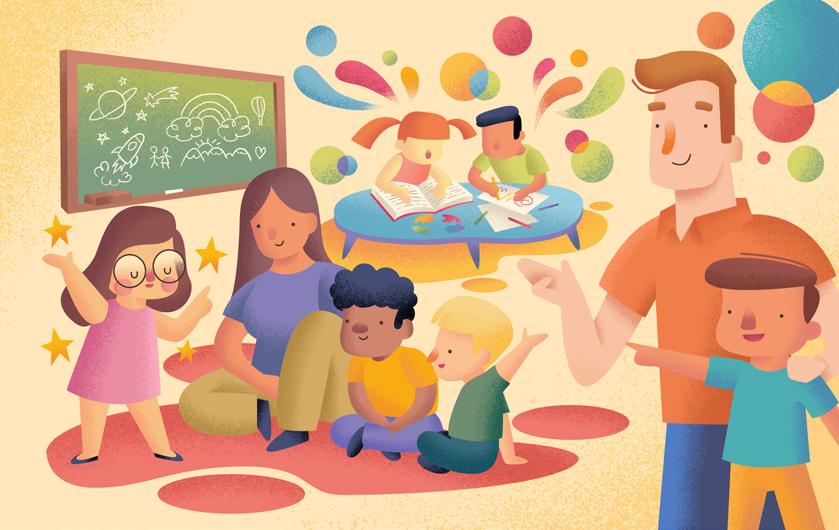
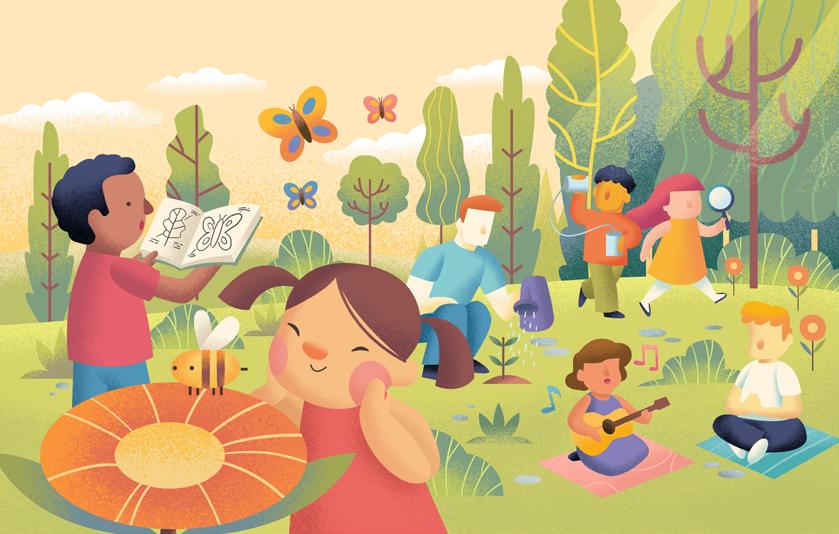
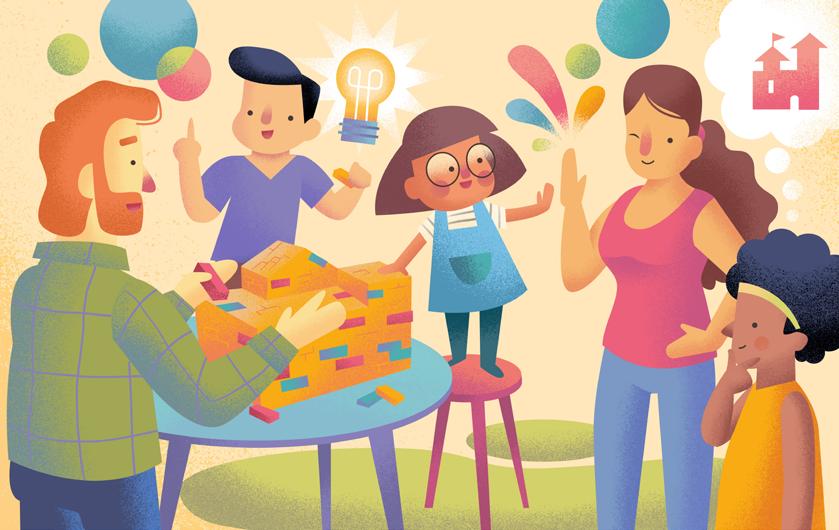
Promoting School Reform
We aim to maximize opportunities for children to fulfil their unique potential, advocating for school and education system reforms. Recognizing that every child learns differently, we emphasize human-centred design in teaching, incorporating core capacities and creating safe, stimulating environments. We enhance traditional learning models with essential human relationships by valuing learners’ inner diversity and fostering their expression through intergenerational partnerships.
Promoting Holistic Well-being/ Positive Mental Health
We integrate children’s holistic well-being and positive mental health at all levels of the living system. Our approach highlights the importance of connectedness with self, others, and the environment for achieving well-being. We recognize that each child’s mental, emotional, physical, and spiritual development is a right, and achieving holistic well-being for children is key to health and to fulfilling their unique potential.
Achieving our goals through intergenerational partnerships
We aim to achieve meaningful participation of children through intergenerational partnerships, supporting their active agency in matters important to them. Understanding children’s perspectives and the perspectives and capacities of those working directly with children is crucial for actions in their best interests. By fostering these partnerships, we support children’s ability to influence their communities and school environments, contributing to their unique potential and holistic well-being.
RESOURCES
ORGANIZATIONAL & FINANCES
Organizational Chart
Annual Financial Report 2023 (Complete version)
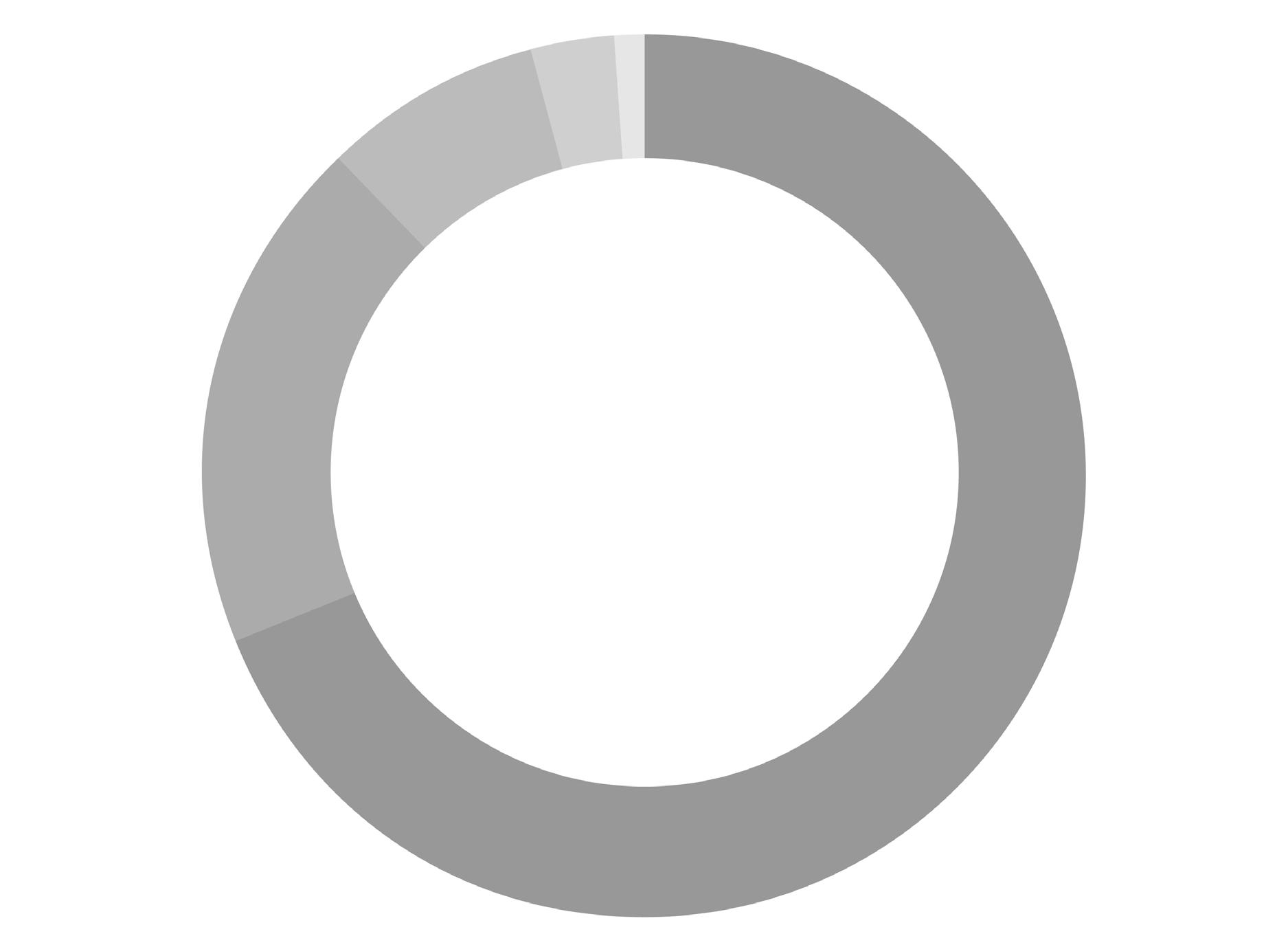

Learning for Well-being Foundation
learningforwellbeing.org
Europaboulevard 57, 1083 AD Amsterdam
+31642481361
info@learningforwellbeing.org
Photos Learning for Well-being Foundation
Illustrations Armin Castellón
